30 Creative Writing Prompts for People Living With Mental Illness
Written by Hannah Blum , author of The Truth About Broken: The Unfixed Version of Self-Love
I believe writing is one of the best ways to express yourself, especially when you live with mental illness. However, it’s hard to know where to start, which is why I have written creative prompts crafted for those of you living with mental illness. Some require more time, and this isn’t something you should do all in one sitting. Spread it out, and make it a journey. Grab your pen, do not overthink, and start sharing your truth about life with mental illness.
If you could explain to someone what it feels like to live with mental illness, what would you say?
Read the following quote, and express your interpretation of it and how it relates to your life with mental illness. It’s feeling full of everything and empty of it all at the same time. This is mental illness.
Write down something you have learned about the history of mental illness and stigma. I encourage you to research online and come back to this prompt. I have listed some resources at the bottom of this blog post. For example, In my research about Bedlam Asylum in the 14th Century, as means of raising hospital income, it was allowed public and casual visitors with no connection to the inmates to watch patients displayed in cages.
Write one chapter of your story.
Read the following quote, and express your interpretation of it and how it relates to your life with mental illness. When you live with a mental illness you spend most of your time “trying to explain” over taking care of yourself.
What does self-love mean to you?
What do you want society to know about those of us living with mental illness?
What is making you feel anxious right now and why?
What has been the toughest part about living with mental illness?
Read the following quote, and express your interpretation of it and how it relates to your life with mental illness. It was when I was lost that I suddenly felt found.
Write down your favorite book and why it meant so much to you.
Write down your biggest source of inspiration.
If you have a passion for any form of art, how do your emotions contribute to your art or writings, photography or any piece of content?
If you could tell a psychiatrist and psychologist how you want to be treated and what you want from them, what would you say?
What struggles are you facing right now?
Someone, who lives without a mental illness, asks you, “How can I be supportive to my friend with mental illness?” Write down your response
Write what you love about yourself.
What has your mental illness taught you about life?
How do you want to get involved with the mental health community?
Why do you think there is so much stigma in society and how can we reduce it?
Read the following quote, and express your interpretation of it and how it relates to your life with mental illness. The mental health problem is not just a health crisis, it’s a social injustice. It’s the mistreatment of the misunderstood.
Those of us living with mental illness struggle with self-love. Why is that? Write down how you think we can improve our self-perception.
How has stigma affected your life?
If you could make change in the mental health care system, what would it be?
Write a fictional story that explains mental illness.
What is one thing you can do that will help you get to where you want to go?
Write down 5 steps you can take that will help you improve your confidence.
In your own words, write an affirmation for you to recite each morning to yourself.
Free Write. Write whatever comes to your mind. Doesn’t matter if it makes sense or not. We can make sense out of nonsense.
Historical references:
Mental Health: Tracing The Stigma of Mental Illness
A Brief History of Mental Illness
Bedlam Asylum History
I hope you enjoyed this post. For more content follow me on Instagram.

At the age of 20, Hannah Blum went from Prom Queen to a mental patient in the blink of an eye, but what she believed would be the end was only just the beginning. In her first book, The Truth About Broken: The Unfixed Version of Self-Love , Hannah Blum redefines what it means to love yourself and takes readers on an unforgettable journey towards embracing what makes them different.
Copyright: The quotes used in this blog post are the original work of Hannah Blum.

Share this:
One thought on “30 creative writing prompts for people living with mental illness”.
- Pingback: 11 Ways of Coping With Your Mental Health During the Coronavirus Pandemic – Halfway2Hannah
Leave a comment Cancel reply

- Already have a WordPress.com account? Log in now.
- Subscribe Subscribed
- Copy shortlink
- Report this content
- View post in Reader
- Manage subscriptions
- Collapse this bar
115+ Writing Exercises for Emotional Exploration
By: Author Valerie Forgeard
Posted on August 17, 2023
Categories Self Improvement
Picture this: you’re sitting quietly, pen in hand, preparing to explore your mind. With our guide on ‘Writing Prompts for Mental Health’, you’ll discover the healing power of journaling.
We’ve researched and analyzed various methods just for you. So, don’t worry if you’re stuck; we’ve got plenty of strategies to help overcome that block.
Get ready to incorporate writing into your self-care routine – it’s easier than you think!
Key Takeaways
- 115 Writing Prompts for Mental Well-being: Delve into introspection and nurture your mental well-being with tailored prompts. Harness the power of writing as a therapeutic tool for self-awareness and healing.
- Writing prompts serve as a powerful tool for promoting mental health and emotional well-being.
- Journaling with writing prompts allows for deep exploration of emotions and thoughts, leading to stress reduction and improved mood.
- Incorporating artistic expression into journaling enhances therapeutic value and aids in emotional resilience.
- Writing prompts promote self-awareness and self-reflection, providing a mirror to the inner world and aiding in self-exploration.
115 Writing Prompts for Mental Well-Being
In a world that often prioritizes hustle over hush, many find solace in penning down their thoughts. Writing can serve as a mirror, reflecting our deepest emotions, fears, hopes, and aspirations. The act itself is therapeutic, providing clarity, closure, and even catharsis. “Inner Reflections” offers a collection of thought-provoking prompts, specifically crafted to guide you through the intricate tapestry of mental well-being. Whether you’re seeking to better understand yourself, nurture your mental health, or simply engage in meaningful introspection, these prompts are your stepping stones to inner peace and resilience. Dive in, and let the words flow.
- When was a time you felt truly at peace? Describe the moment in detail.
- What are your personal signs that you may be struggling with your mental health?
- Describe a healthy coping mechanism that helps you through tough times.
- What does your ideal safe space look and feel like? Describe it.
- What does self-care mean to you? List 5 ways you like to practice it.
- What affirmations help ground or motivate you when you’re struggling?
- How do you show compassion for yourself in difficult times?
- What brings you hope when things feel bleak?
- List 10 small joys that boost your mood.
- What quote resonates with you when you feel anxious or sad?
- When have you felt your strongest and most confident? Describe the memory.
- What simple pleasure brings you joy and comfort?
- What energizes and uplifts you?
- What calms and grounds you?
- When have you overcome a mental health challenge that seemed daunting?
- What healthy habits support your mental wellbeing?
- What creative outlets help process or express difficult emotions for you?
- Who is part of your mental health support system? What do they do that’s helpful?
- What small steps could you take to be kinder to yourself every day?
- How do you reframe negative thinking into a more balanced perspective?
- List things that help distract you from anxious thoughts.
- What brings meaning and purpose to your life?
- When have you advocated for your mental health needs?
- What psychological or emotional breakthroughs have shaped your growth?
- How has therapy or counseling been helpful for you?
- What misconceptions about mental illness have you encountered? How can we challenge stigma?
- How can we normalize conversations about mental health in everyday life?
- When has someone’s kindness or understanding uplifted you in a difficult time?
- What qualities do you appreciate most about yourself?
- How can you set healthy boundaries while still being kind?
- What self-limiting belief could you try rewriting with something more compassionate?
- When has nature been restorative or healing for you? Describe a memory.
- What brings you feelings of acceptance and belonging?
- How can you cultivate more self-acceptance and patience for flaws or setbacks?
- What helps you feel gently held during sad or lonely times?
- What healthy sleep habits help your mental health?
- When have you found the courage to be vulnerable about your mental health struggles?
- How could you extend more understanding and compassion to others facing mental health challenges?
- What LGBTQ+ ally resources could you share to support mental wellbeing in that community?
- How has stigma around mental illness affected you or loved ones? How can we change this?
- What self-care practices help you cope with stress or anxiety?
- When have you felt dismissed, misunderstood or judged for mental health struggles?
- How could mental health professionals be more inclusive, validating and empowering?
- What qualities help a therapist support you effectively?
- How can you balance self-compassion with motivation for growth?
- What brings you feelings of inner calm, safety and peace? Describe in detail.
- How can journaling or expressive writing support mental wellbeing?
- What mental health misconceptions existed in your family or culture? How have your views evolved?
- How can we work together to challenge mental health stigma in schools and workplaces?
- What self-care practices help you through depression or boost your mood?
- How has mental illness impacted your family or loved ones? How has it shaped your perspective?
- When have you felt empowered to take control of your mental health?
- How can we show compassion for behaviors driven by mental health struggles?
- What mental health advocacy and education makes you feel hopeful?
- What key conversations about mental health do young people need today? How can we support them?
- Share a time you felt genuinely appreciated and accepted for who you are.
- How can family and friends thoughtfully support someone battling mental illness?
- What brings you feelings of inner confidence and self-acceptance?
- How has therapy helped equip you with mental health coping tools?
- How can we work together to make mental health resources more accessible?
- What self-care actions could you take today to be kinder to yourself?
- How can you create a haven of peace within yourself to draw strength from?
- When have you overcome mental health obstacles that once seemed insurmountable?
- What healthy emotional outlets help you process sadness or anger?
- How has mental illness shaped your worldview or life path?
- How can we make mental health a normal part of everyday conversation?
- What inspiring advocates are reducing mental health stigma? How are they making a difference?
- List small ways your friends or family have shown mental health support or understanding. Appreciate these gestures.
- Name 3 positive traits, strengths or qualities you have.
- When has nature, creativity or self-expression been healing for you emotionally?
- What mental health misconceptions persist in your community? How can you kindly challenge them?
- How is mental health addressed in your workplace? What changes could reduce stigma?
- List small pleasures or activities that boost your mood.
- How have psychologists helped you gain insight into behaviors or thought patterns?
- What self-compassion mantras help you through dark times?
- How has depression or anxiety impacted your life and perspective?
- What keeps you feeling meaningfully connected with others?
- How have psychiatrists, medications or treatments improved your mental health?
- What stigmatizing language about mental illness have you used or heard? How you reword this more positively?
- How can you kindly address a loved one showing signs of mental health struggles?
- What helps you feel safe and soothed when you feel panicked or anxious?
- How can you be gentle with yourself when you make a mistake or fall short?
- How has depression or anxiety impacted your friendships and relationships?
- How can you cultivate more self-acceptance for life’s ups and downs?
- What mental health advocacy efforts make you feel encouraged and hopeful?
- What key conversations about mental health do men need today? How can we support them?
- How has grief, trauma or loss impacted your mental health? What helped with healing?
- How can we make mental health resources more accessible in underserved communities?
- What self-care or support has been most helpful through your mental health journey?
- How have you overcome mental health shame, stigma or discrimination? What did you learn?
- What brings you a sense of meaning, purpose or spiritual wellbeing?
- How can society better understand complex mental health conditions like bipolar disorder?
- What self-love mantras help you cultivate kindness and compassion for yourself?
- How has mental illness affected your personal growth and resilience?
- How can peers, coworkers and community members provide better mental health support?
- What mental health misconceptions did you have in the past? How has your thinking evolved?
- What key mental health conversations need to happen to support people of color?
- How has art, music or creativity helped your healing process during mental health struggles?
- What self-care practices bring you solace, restoration and strength?
- How has therapy or counseling been helpful in your mental health journey?
- What mental health advocacy efforts make you feel inspired and uplifted?
- How can we make mental health care affordable and accessible for all?
- Share ways your loved ones have supported you through mental health challenges.
- What self-care actions help boost your mood when you feel down?
- How can journalists report on mental illness more compassionately?
- What triggers your anxiety? What healthy coping mechanisms help?
- How have psychiatric medications or treatments benefited your mental health?
- How can society better understand conditions like OCD, PTSD and personality disorders with compassion?
- What gives you hope when facing mental health obstacles or setbacks?
- How has mental illness shaped your purpose or career path?
- What myths about suicide need to be dispelled with compassion and facts?
- How can teachers better support students’ mental health needs?
Understanding the Power of Writing for Mental Health
It’s crucial to understand that writing can serve as a powerful tool for mental health improvement. You might be wondering, how does it work? The magic lies within therapeutic storytelling and writing therapy.
Research indicates these methods give you the power to articulate complex emotions and experiences, fostering a greater understanding of your inner world.
Through therapeutic storytelling, you craft narratives about your life events. This not only provides an emotional outlet but also helps in redefining perspectives on past traumas.
Writing therapy, on the other hand, offers a non-judgmental space where you confront feelings instead of burying them deep inside.
The Role of Journaling in Emotional Well-being
As you delve deeper into the realm of mental health, it’s important to consider the potent benefits journaling can bring to your emotional well-being.
Research highlights how this simple yet profound practice serves as a powerful tool for emotional release; providing an outlet for pent-up feelings and offering a safe space to self-reflect.
Exploring these techniques not only promotes self-awareness but also allows you to analyze your thoughts and emotions in a meaningful way, thus empowering you towards achieving greater mental clarity.
Journaling Benefits
Journaling’s been proven to have numerous benefits for mental health, including stress reduction and improved mood. Mindful journaling, particularly, allows you to dive deep into your emotions and thoughts. It’s an act of self-care that encourages you to slow down, examine your feelings objectively, and make sense of them.
Artistic expression in journaling further enhances its therapeutic value. Drawing or doodling alongside writing might unlock layers of emotions that words alone can’t express. You’re not just documenting your thoughts but also actively processing them, which aids emotional resilience.
In essence, the practice isn’t about perfect grammar or impressive vocabulary—it’s about understanding yourself better. So embrace this liberating journey of self-discovery and healing—you’ll be surprised by how much it enriches your mental wellness.
Emotional Release Techniques
You’ll find that incorporating emotional release techniques in your journaling routine can significantly help in dealing with stress and negative emotions. Research shows these methods bring out hidden feelings, leading to a sense of relief and clarity.
Here are three effective techniques:
- Art Therapy : This isn’t just about creating beautiful art, it’s about expressing what you’re feeling inside. Draw or paint your emotions; no artistic skills required.
- Mindful Meditation : This technique helps you focus on the present moment, letting go of past regrets and future worries.
- Writing Prompts : They guide your thoughts towards certain areas, helping you pour out bottled-up feelings.
Promoting Self-awareness
In this next phase, let’s explore how journaling can promote self-awareness in your life. With mindful messaging as our guide, you’ll find that writing out your thoughts and feelings provides a mirror to your inner world. It’s not just about venting; it’s an analytical process where you dissect your emotions, identify patterns, and gain insights.
Consider integrating art therapy into your journaling routine. Drawings or paintings can express what words sometimes can’t and provide a different perspective. Research shows that the combination of writing and visual expression enhances self-exploration and understanding.
How to Use Writing Prompts for Self-Reflection
Using writing prompts can greatly assist you in your journey of self-reflection. When you’re struggling with how to express your thoughts, feelings, or experiences, these prompts serve as a guide. They pave the way for self-expression techniques that allow you to delve deeper into your psyche.
The ‘Mindful Narrative’ approach involves weaving together an understanding of your past and present, analyzing patterns and drawing meaningful conclusions. It’s not just about jotting down what happened today or yesterday—it’s about connecting those events in a mindful way.
The Connection Between Creative Writing and Stress Relief
Now that you’ve understood how to use writing prompts for self-reflection, let’s delve into the connection between creative writing and stress relief.
Research shows that Writing therapy and Therapeutic storytelling can significantly reduce your stress levels. Unleashing your creativity through words not only distracts you from the cause of your stress but also provides a safe space to express hidden emotions.
- Writing therapy allows you to release pent-up feelings and clear the mental clutter.
- Therapeutic storytelling helps in understanding complex emotions by weaving them into narratives.
- Creative writing exercises like poetry or journaling encourage mindful observation, thus promoting relaxation.
Analyzing these aspects, it’s evident that harnessing your inner storyteller is more therapeutic than one might initially perceive.
Exploring Different Types of Mental Health Writing Prompts
Let’s explore different types of therapeutic cues for self-expression, specifically designed to boost one’s emotional well-being. Customizing prompts is crucial to this quest. Why? Because everyone’s emotional landscape is unique and deserves personalized attention.
Therapeutic storytelling can also be an effective tool in this respect – it gives voice to your deepest feelings and experiences.
Think about it: you’re not just writing; you’re navigating your emotional labyrinth, making sense of what’s within. So, whether you’re reflecting on past experiences or projecting future aspirations, the key is personalization. Your writing prompts should resonate with your current state of mind and cater to your healing needs.
Remember that these tools are here to help guide you towards better mental health, so don’t hesitate to modify them as needed. You’ve got the power!
Writing Prompts for Anxiety Management
You’re about to delve into therapeutic cues specifically designed for managing your anxiety better. Research shows that techniques such as anxiety visualization and therapeutic storytelling can be incredibly effective at easing your anxious mind.
Anxiety visualization involves creating a mental image of what’s causing your stress, then mentally transforming it into something less intimidating. For instance, you could imagine your anxiety as a large wave, then visualize it shrinking down to a small ripple.
Therapeutic storytelling can work similarly. It can encourage you to craft narratives about overcoming challenges or fears, aiding in reframing the way you see your anxieties. By focusing on triumph rather than stress in these stories, you gently guide your mind towards more optimistic perspectives.
Depression and the Therapeutic Impact of Writing
Shifting gears, we’ll explore how penning down your thoughts and feelings can serve as a powerful tool in combating depression. Research reveals that writing, particularly Depression Narratives, has been effective in managing depressive symptoms.
When you engage in Art Therapy Writing, it’s like conversing with yourself – identifying the triggers behind your emotions and mapping out possible solutions. This process enhances self-awareness which fosters healing.
Moreover, it isn’t just about venting; it’s also about restructuring those bleak narratives into more positive ones. By actively decoding your experiences through writing, you’re not just releasing pent-up emotions but also reshaping your perspective towards them.
Promoting Positive Thinking Through Writing Activities
You’re likely no stranger to the relentless grip of negative thinking. But have you ever considered the power of identifying these patterns and using transformative writing exercises to combat them?
Research has consistently shown that we can rewrite our narratives, replacing harmful thought cycles with positive affirmations.
Let’s dive deep into this fascinating subject and explore strategies for harnessing your own pen to promote positive thinking and mental wellbeing.
Identifying Negative Thought Patterns”
It’s crucial to recognize when you’re falling into negative thought patterns, as they can greatly impact your mental health. These are often triggered by cognitive distortions, which tend to cloud the mind with irrational thoughts and beliefs.
Keep these three steps in mind:
- Identify : Be mindful of your internal dialogue. If it’s predominantly negative or self-deprecating, that’s a sign.
- Analyze : Reflect on why these thoughts are recurring. What triggers them? How accurate are they?
- Reframe : Challenge these thoughts and replace them with more rational ones.
Practicing mindfulness writing exercises can also help in this process, providing an outlet for self-expression while enhancing awareness about your thought patterns.
Transformative Writing Exercises
Transformative writing exercises can be an effective tool in challenging and reframing negative thought patterns. When you’re stuck in a loop of pessimistic thinking, narrative therapy methods like expressive writing can serve as a lifeline. Studies indicate that this form of self-expression allows you to dissect your emotions, providing clarity and relief.
In the process, you’re not just venting; you’re actively engaging with your thoughts. You analyze them from different perspectives, which opens up new ways of understanding yourself. It’s like being both the narrator and listener of your own story – creating an empathetic dialogue within yourself.
Tips to Maximize the Benefits of Mental Health Writing Prompts
Consider starting your mental health journaling with a positive affirmation to set the tone. Your prompt selection is crucial in therapeutic writing, as it directs your thoughts and emotions towards healing. Opt for prompts that offer introspection, allowing you to delve deeper into your feelings. This process isn’t just cathartic; studies show its potential in improving overall mental health.
Analyzing your emotional responses to these prompts helps identify triggers or stressors negatively affecting you. This self-analysis can be an insightful tool for growth and coping strategies. Remember, there’s no one-size-fits-all in journaling—it’s about finding what works for you personally.
Therapeutic writing is a journey of self-discovery and healing—your chosen prompts should facilitate this process effectively.
Case Studies: Healing Through Writing
You’ll find numerous case studies demonstrating the healing power of putting pen to paper. As a proven technique, Narrative Therapy harnesses this transformative potential in treating various mental health issues.
One pivotal study demonstrated how Expressive Writing can significantly reduce symptoms of post-traumatic stress disorder (PTSD). Participants were asked to write about their traumas for 15-20 minutes over four consecutive days, and the results were remarkable. Researchers found that those who engaged in this therapeutic activity exhibited fewer PTSD symptoms compared to those who didn’t.
These findings aren’t isolated; similar patterns are seen with depression, anxiety, and grief. So take heart! Your expressive writing journey isn’t just cathartic—it’s backed up by science too. It’s more than therapy; it’s a pathway towards healing.
Overcoming Writer’s Block in Mental Health Journaling
You’re not alone if you’ve ever hit a wall when journaling for mental health; it’s a common challenge many face.
We’ll delve into these issues, identifying the specific hurdles that might be hindering your progress.
From there, we’ll explore various research-backed strategies to unblock your thoughts and get back to obtaining the therapeutic benefits of journaling.
Identifying Journaling Challenges
Identifying your journaling challenges can be tough, but it’s an important step in improving your mental health.
Journaling obstacles may stem from various sources including the mental health stigma that often surrounds discussions of emotional wellbeing.
- Lack of Time: You may feel like you’re too busy to commit to a regular journaling routine.
- Fear of Confrontation: Writing about your feelings might be intimidating due to fear of confronting uncomfortable emotions.
- Mental Health Stigma: Society’s negative attitudes towards mental health issues can make it difficult for you to openly express your feelings even in a private journal.
- Absence of Prompt Ideas: Without clear direction, starting a journal entry becomes challenging.
Recognizing these hurdles is crucial as it paves the way towards overcoming them and enhancing your emotional wellness journey through journaling.
Strategies for Unblocking
It’s essential to develop strategies for unblocking and overcoming your journaling challenges. Engaging in creative catharsis can be a profound method. You might feel stuck when you face the blank page, but remember, it’s not about perfect prose; it’s about expressing yourself freely.
Another strategy is therapeutic storytelling. Research shows that crafting stories from our experiences can help organize complex emotions and foster understanding. It doesn’t have to be an epic tale— even small anecdotes have power.
Ultimately, don’t pressure yourself to write every day or fill pages upon pages— consistency matters more than volume. Be patient with yourself, take deep breaths, and recognize that each word you write contributes to your mental health journey.
Incorporating Writing Into Your Mental Health Routine
Incorporating writing into your mental health routine can help you process emotions more effectively. Research shows that techniques like Writing Therapy and Mindful Scribbling offer significant emotional benefits. Think of it as decluttering your mind, allowing for deeper analysis of thoughts and feelings.
Writing Therapy is a structured method where you express yourself through words to gain insights into your mental state. On the other hand, Mindful Scribbling lets you freely jot down thoughts as they come, fostering mindfulness and present moment awareness.
Additional Resources for Mental Health Writing Prompts
You’ll find plenty of additional resources that can guide you in expressing your thoughts and feelings through the written word. These resources aid in prompt curation and offer a comprehensive mental health vocabulary, which are essential tools for this journey.
- Visualize an overflowing library, filled with books, journals, and articles on mental health.
- Imagine workshops geared towards teaching effective ways to articulate feelings.
- Picture online forums offering support from individuals who also use writing as a therapeutic tool.
- Envision mobile apps providing guided prompts tailored to your emotional state.
You’ve explored the power of writing for mental health and seen its impact firsthand through case studies. Now, it’s your turn to conquer that writer’s block and delve into self-reflection. Let creativity wash away stress and remember, it’s not just a pen and paper; it’s a tool in your mental wellness routine.

47 Mental Health Journal Prompts
Mental illness sucks. Depression, anxiety, OCD, panic attacks, and eating disorders can be crippling. Whether diagnosed or not, we all deal with some degree of mental health issue from time to time.
You’re not alone.
You can make progress.
And journaling is one of the best ways to do so.
Therapy can work wonders, but you probably can’t afford to see a professional therapist every day, right? Luckily you can grab a pen and a journal in between sessions. It’s accessible, easy, and low risk.
Simply getting your thoughts down on paper can be a relief. Journaling can help you identify hidden issues, suppressed thoughts, and work through your pain.
But it’s tough to get started, right? A blank canvas can be terrifying. So we’ve put together forty-six mental health journal prompts to help you get started.
You can start with number one and spend forty-six days with these. Or you can pick and choose. You can do some of these daily or weekly – it’s entirely up to you.
Guided Journals for Mental Health
But first – if you’d prefer to ditch the blank journal all together, here are some of our top picks for guided journals with prompts baked right in there:
- 5 Minute Journal – The 5 Minute Journal is a high quality and well-structured journal. It’s focused on morning and evening reflections where you will express gratitude and affirmations. It’s one of the best selling journals on the planet for a reason.
- One Line a Day – This is a great guided journal for beginners. You write one line a day, each day, for five years. It eventually becomes a beautiful reflection over the course of five years. Receive therapy in the form of journaling some each day, and then after five years you have a book full of growth and maturity to look back on.
- Present, Not Perfect – This is a beautifully illustrated guided journal that helps you slow down and enjoy life rather than pushing for perfection. Everyday is full of different prompts to help you find balance and alleviate stress.
46 Journal Prompts for Mental Health
As mentioned, these prompts are intended to help you over the hump of journaling block. If in the middle of tackling one of these mental health prompts you feel the need to change direction, you have our blessing.
The idea is that you have an easy, accessible starting point. Whatever happens after that is up to you. Let your thoughts flow freely from brain to pen to journal.
Let these serve as starting blocks and helpful constraints. But break out of them and chart your own path when necessary.
Some Lighter Mental Health Journal Prompts
These may be a good place to start if you’re new to journaling. It can be hard to dig deep within the confines of a journal, so don’t be afraid to start slow. Mental health is a journey.
- Write down 3 things you’re grateful for. Don’t make it complicated – the first three that come to mind.
- Write about your day so far (if in the evening). What were your favorite moments? Who did you spend time with? What did you learn?
- Write about what your upcoming day (if in the morning). What are your plans? Who will you see? What are you looking forward to?
- What are your goals for the upcoming week, month, or season? They don’t have to be specific (or SMART), just journal some about your current ambitions.
- Who are some of your closest friends right now? Who in your life understands you, supports you, and encourages you?
- When was the last time you laughed really hard? Like cackling can’t-control-yourself laughter… What were you laughing at and who were you with?
- What is your idea of a perfect day? Describe it in detail. Who are you with? What are you doing? Where are you?
- Describe how you feel physically right now. What hurts, aches, and pains do you have? What feels good?
- What are your three favorite books? When did you read them? What did you learn from them?
- What songs have had the biggest impact on you? Not necessarily your favorites, but are there any that speak to you? Have any songs changed your perspective on something?
- What movies have had the biggest impact on you? Same as above, not your favorites per se, but which have moved you?
- When was the last time you did something for someone else, with no other agenda other than to help? What did you do? Who did you help?
- If you could be anywhere in the world right now, where would it be? Why?
- What items or objects bring you the most comfort? What about them makes you feel at ease?
- What’s the most embarrassing thing to ever happen to you? Why was it so embarrassing?
- What are your favorite things about yourself? What traits and attributes do you appreciate the most?
- What quotes inspire you on difficult days? Why are they inspirational or comforting?
- What are three or four of your biggest bucket list items? What excites you the most about each?
Beneath the Surface Journal Prompts
Once you’re comfortable writing your thoughts and feelings in a journal, it’s time to move on and get below the surface. These prompts will help you evaluate your mental health and make progress.
- How do you feel right now? What emotions do you have? Why do you think you’re feeling that way? (Once you have the hang of journaling, you should start every journal session with this question.)
- What are your coping mechanisms? When your mental health is at a low – you’re feeling depressed, anxious, or panicked – how do you cope? What do you turn to? How do you behave?
- Write about the three things you are most proud of. Why are you proud of these things?
- What does self-care mean to you? Describe the last time you really cared for yourself.
- How have you changed in the last five years? How have you grown? What areas of your life haven’t changed at all?
- How would you describe yourself? This is a more open-ended prompt, take it and run with it without any further constraints. Pay attention to what exactly you’re describing, honing in on, or avoiding.
- Write a letter to yourself as a child. What would you tell yourself about life? What would you tell yourself to avoid or to lean into?
- Write a letter to your future self. What do you hope life will be like then? What would your present self tell your future self?
- When times are difficult, what do you try to remember? What thoughts, memories, or mental models help you most in times of stress, anxiety, and depression?
- Write a letter to yourself on your worst day. When your mental health is at its all-time lowest, what would you tell yourself?
- What are three things that make you angry? What frustrates or annoys you more than anything else?
- What, if anything, do you regret? Why do you regret it? Has any good come from it?
- When was the last time you cried? What made you cry? How do you feel about this being the last situation in which you cried?
- Write a poem. It doesn’t have to be world-class, just pick a theme and try to write a poem around it.
- What does love mean to you? Have you loved someone? Have you been loved?
- What have your mental health issues or mental illnesses taught you? What have you learned about the world? What have they taught you about yourself?
Deep-End Mental Health Journal Prompts
These prompts could help you make serious progress in the area of mental health. Having said that, we aren’t therapists here, and no journal session should ever replace clinical help.
But dive into these, be honest with yourself, and dig deep.
- What do you believe about God? Check out Know Mercy if you’re looking for some Bible resources .
- Write a letter to the person who has hurt you or most negatively impacted your life. You don’t have to deliver it, but get it out. What will you say to them?
- What moment or moments of your life perfectly describe your mental health issue(s)? What happened?
- What’s your least favorite thing about yourself? Would you change it if you could? Is there any chance it’s a strength or gift in disguise? Why?
- What secrets are you keeping? Why are you keeping them and how do you feel like they might be affecting your mental health?
- If you struggle with an eating disorder of any kind, write a letter to your body. What would you say to it?
- What do you think is the worst thing you’ve ever done? Does it have any effect on you today?
- What’s the biggest breakthrough moment or realization you’ve ever had? What was powerful about it?
- Write a letter to your parents. You don’t have to deliver it, just write it.
- Write about your most difficult memory. Has this memory shaped you? Should it continue shaping you? Have you ever told anyone about it?
- In six months, describe your life with your mental illness or mental health struggles completely under control. Don’t think about whether or not that’s a possibility, just assume it is. What does your life look like?
- Describe in detail your biggest triggers. What do they look like? What are your immediate coping mechanisms for each?
- If you had no absolutely no fear in life, what would you do tomorrow? What’s preventing you from doing it today?
Check out our master list of journal prompts .
Make Progress Through Journaling
The journey to mental health is long and winding. Dealing with mental illness can take many different approaches – therapy, friendships, and positive coping mechanisms. Journaling is just one approach to help.
If you’re a man and looking to get into journaling, but not sure where to start, check out our favorite journals for men .
We hope that these prompts are helpful, but we also want to point out that there’s no substitute for friendships, community, and therapy. We need other people. And at time we need professional people in our corner, too. Journaling is a fantastic tool and resource, but it may or may not be sufficient.
We hope these prompts help you make progress on your journey. You’re not alone.
Brooks Manley

Creative Primer is a resource on all things journaling, creativity, and productivity. We’ll help you produce better ideas, get more done, and live a more effective life.
My name is Brooks. I do a ton of journaling, like to think I’m a creative (jury’s out), and spend a lot of time thinking about productivity. I hope these resources and product recommendations serve you well. Reach out if you ever want to chat or let me know about a journal I need to check out!
Here’s my favorite journal for 2024:

Gratitude Journal Prompts Mindfulness Journal Prompts Journal Prompts for Anxiety Reflective Journal Prompts Healing Journal Prompts Cognitive Behavioral Therapy Journal Prompts Mental Health Journal Prompts ASMR Journal Prompts Manifestation Journal Prompts Self-Care Journal Prompts Morning Journal Prompts Evening Journal Prompts Self-Improvement Journal Prompts Creative Writing Journal Prompts Dream Journal Prompts Relationship Journal Prompts "What If" Journal Prompts New Year Journal Prompts Shadow Work Journal Prompts Journal Prompts for Overcoming Fear Journal Prompts for Dealing with Loss Journal Prompts for Discerning and Decision Making Travel Journal Prompts Fun Journal Prompts
How to Be More Creative
You may also like, the road to creative brilliance: embracing the explicit-implicit interaction (eii) theory.
250+ Journal Prompts for Every Scenario and Circumstance
How to make an intention journal, leave a reply cancel reply.
Save my name, email, and website in this browser for the next time I comment.
- Productivity
- Favorite Journals

99 Journal Prompts for Mental Health
- Personal Development

This post may contain affiliate links. See full disclosure.
One way to deal with our cascading emotions after a long day is by writing it all out. Inquisitively-designed journal prompts for mental health will help. That’s because prompts, specifically designed for mental health, can help you best process your thoughts and emotions in an intentional way.
According to an article published by the University of Rochester Medical Center , journaling can help you manage anxiety, reduce stress, and cope with depression. Journaling can help you gain control of your emotions and improve your mental health.
Let’s face it; dealing with our mental health all alone can be overwhelming. However, it becomes even more complicated when we don’t devise a let-out for the emotions we can hardly make sense of.
One example is staying indoors while experiencing mood swings, a symptom of depression. You just want to think with your emotions, hoping the emotions will soon fade. The thing is, they likely won’t.
Here is why:
Have you ever heard of sunny deposition? Researchers at Brigham Young University found that people become more distressed in seasons like Winter with little sun exposure.
Just like feeling the sun rays caress your skin to help you manage your depression, writing out your emotions using mental health journal prompts helps you let go of your emotions.
Now, let’s cover some facts to help us best understand how journaling and journal prompts can help us manage our mental health.
What is Mental Health?
The World Health Organization (WHO) defines mental health succinctly; “mental health is a state of well-being in which an individual realizes his or her abilities, can cope with the normal stresses of life, can work productively, and can make a contribution to his or her community.”
To further simplify WHO’s definition of mental health, we can say mental health is a state where an individual can function well mentally in whatever situation or circumstance they find themself.
You see, mental health encompasses our psychological self. This includes our cognitive, emotional, and behavioral well-being. This shows that our mental health could extend beyond our minds but how we act. It is one of the major triggers for how we act.
Basically, your mental health affects how you feel, think, and behave. When these three are in disarray, we can refer to it as either a mental disorder or mental illness.
What is Journaling?
Journaling, on the other hand, is expressing your thoughts in words or symbols using a journal. This involves writing short sentences or making quick notes about certain aspects of yourself that you’d rather not say.
These parts of us are often responsible for how we feel, relate, and deal with societal pressure. Journaling gives us a chance to face them and perhaps have a conversation with them.
With journaling, you’ll be able to process your emotions more positively. Ultimately, journaling will help you channel both your positive and negative feelings into an outlet.
Additionally, journaling for mental health is an effective way of dialoguing with yourself because it helps you explore your thoughts and feelings. This exercise is one of the most effective ways to improve mental wellbeing.
Your journal could be digital or even a paper notepad that you can choose to keep private. As long as you have blank sheets to pen down your thoughts or the day’s and week’s event, that becomes your journal.
How Is Journaling Good for Mental Health?
Research carried out by Koopman, Ismailji, Holmes, Classen, Palesh, & Wales (2005) show that writing expressively (a form of journaling) may help reduce symptoms of depression in women. That is women who are finding it challenging to deal with the aftermath of intimate partner violence.
Another group of researchers, Stice, Burton, Bearman, & Rohde (2006), found that writing a journal could be as effective as cognitive-behavioral therapy (CBT) for helping high-risk adolescents reduce symptoms of depression.
Now, besides providing a window to let out your emotions, journaling works like magic for mental health (I know, we are not in Camelot, but…) By writing your thoughts down using journal prompts for mental health, you get to:
- Recognize triggers by revisiting your journal entries.
- What’s more, the act of writing out your emotions can help you control them, thus improving your mood.
- Also, since journaling may seem tasking for some, the activity shows you are prioritizing your mental health. This situation comes with a lot of benefits.
Dr. Nikole Benders-Hadi , a board-certified adult psychiatrist, connects a “healthier and happier life” with our mental health. And we can start by prioritizing our mental health. Through journaling, we prioritize our mental health towards a healthier and happier life.
Do You Need Prompts to Journal for Mental Health?
Journaling does so much good to our mental health. But the question is, do you really need the prompts I will share with you? The truth is, you don’t necessarily actually need journal prompts for mental health. You can easily pick up a journal or open a note app on your phone and begin writing.
Without journal prompts, however, you may find it challenging to express yourself in ways that it will help you process thoughts and emotions.
If you want to create an insightful journal entry where you can easily pinpoint your triggers, specially designed prompts for mental health are helpful.
Besides every other reason I have outlined why you need journal prompts for mental health, the most important is that it motivates you to work on your psychological aspect of yourself.
How Will the Journal Prompt for Mental Help with Self-discovery?
Recall how I mentioned how journaling helps you spot triggers. This is self-awareness. And self-awareness is an excellent technique to discover parts of you.
With every bit of insight you gain about yourself, you can begin to hold yourself responsible and monitor your mental health.
Now, let’s get down to the business of writing how exactly we feel.
99 Journaling Prompts to Help You Improve on Your Well-Being
Let’s look at 99 journaling prompts that will help you kick-start your journey to better mental well-being.
Journal Prompts to Start Your Journey on a Clean Slate
These journal prompts for mental health will help you lay it all out, providing a clean slate for you to take on your day head-on.
- Who has given you a reason to smile in the past few days? Write a bit about them and how they make you smile.
- Write a short poem to your future self. The poem should describe where you hope you’ll be in some years’ time.
- Write a letter to someone who has hurt you. Include things you never told them, but you wished you could.
- Write a letter expressing why you forgive yourself for a past mistake.
- Write a letter to someone who hurt you letting them know you forgive them.
- Write something short about your strengths and how they can help you use them to your advantage.
- Write a one stanza poem about your mood. While writing, reflect on what happened that made you feel that way.
- What gives you more energy? Think of ways you can add them to your life.
- Write between five and ten things that make you feel anxious.
- Write at least ten things that you can control.
- Write at least five things that you can’t control.
- Write at least five actions that you can take this week that will make you feel joyful.
- Imagine what your life will be like when every challenge you’re facing at the moment is gone.
- Think about the past five years of your life. What progress have you made? What can you change or do differently to be where you wish to be?
- Write a short message to yourself about your bad days.
- Write a short note about how you feel about your body.
- Describe your emotions with as many words as you can.
- Describe one of your most passionate goals
- Make a list of your coping mechanisms
- Describe who you were five to ten years ago.
- Write a short story about a fictional character that goes through your circumstances and how they manage to overcome them.
- Describe what love means to you and how best you can show it.
- Describe your greatest yearnings and wishes.
- Write a poem about the warmest memories of your childhood. Title it “Nostalgia.”
- Write about your current state of mind. For example, do you feel weird, angry, lazy, or anxious?
Journal Prompts to Say Thank You to You
You need a break. Your mental self needs a break even though you may not see it physically. So cut yourself some slack and say acknowledge your gifts today, however subtle it may seem.
Expressing gratitude is an excellent way to boost your mood, decreasing the risk of depression automatically serving as an anti-stress medication. So Come on, give it a try!
- Do an audio recording of you mentioning at least 20 things you’re grateful to have. Tag this as “List 1.”
- Take the number 5 on the list and write about how grateful you are for that in particular.
- Search deep down, what difference has your number 5 made in your life. Be positive.
- Now, make a list of the things you wished for but never got. Tag this as “List 2.”
- What you will do now is compare List 1 and 2. Which of these memories would you want to keep? Again, be realistic and fair as much as you can.
- Take a long hard look at the mirror of yourself. Forget what someone has said to you previously about how you look. Instead, be objective. What do you think of the face that stared back at you?
- Remind yourself of the best compliment you’ve ever gotten.
- Who are you most grateful to have in your life? What is their name? What have they done?
- What satisfies you the most about waking up in the morning? Write about it.
- What aspect of nature thrills you the most? Is it the sunrise, flora and fauna, the wind, animals, or the sea waves? Express your feeling of this aspect of nature in a fourteen-line poem.
- Write five things that, if you saw happen, you’d be most grateful.
- Write five things you usually experience that easily cause you to show gratitude.
- Write down the challenges and circumstances that you’ve faced that shaped who you are.
- What’s your biggest failure, and how did you handle it?
- What do you appreciate most about each day? First, think of everything you see each day: the challenges, mistakes you make, the people you see that make things challenging. Then, think about how you manage to get through each day.
Journal Prompts for Depression
Depression is associated with elevation or lowering of someone’s mood. Journaling can help you shift your frame of mind, thus managing depression. These mental health journal prompts can give you a head start. So grab a pen and paper – virtually or physically, any would do.
- Do you think your emotions define your actions?
- Ask yourself this: should they? Should these emotions have that power?
- Why should they, or why shouldn’t these emotions have such power over you? Please, provide detailed and objective responses.
- Whatever you have done, do you think it’s logical? Yes, mental health is more emotional than rational, but sometimes we have to invite the latter.
- What do you think about when you are down?
- When do you think about when you are over the moon?
- Describe the difference between these moods.
- Describe the things you can see at the moment. Focus on just the things and not people. It could be the items in your bedroom, living room, or outside your house or office.
- Look outside your window and observe one or two people out there (their mood, state of mind, appearance, etc.). Then, write what you think about them based on your observation. A few lines will do.
- Write about any healthy food or drink food that quickly affects your mood positively.
- Look around your room or your office. Think of how you might want to reorganize the things there. You may not have to reorganize it per se, especially if you’ve just recently done that, but write about a new arrangement and positional placements of furniture and other items in your room or office space that you might consider doing in the future.
- Draw an emoji that shows how you feel right now.
- Describe an animal you know that often looks like what you’re feeling at the moment.
- Write about the things you’re feeling right now. What thoughts are in your mind? Use single words to describe each of these feelings.
- Compose a paragraph about why you feel the way you do right now. It could be a one or two-sentence paragraph.
- Think about this: do you really want to be like this? Feel this way?
- Now, write out what you prefer to do instead and why.
Journal Prompts for Anxiety
The Anxiety and Depression Association of America reports that anxiety affects roughly 40 million American adults every year. Anxiety isn’t only that feeling of nervousness or restlessness. It is both and more. Anxiety could extend to the intrusive thoughts that destabilize our day. Use this journal prompts for mental health to help you better deal with those feelings of uneasiness.
- Tell me, how exactly do you feel now? Yes, you are anxious. Describe the feeling in detail.
- Can you tell why you feel restless?
- If yes, describe the reason in 3-5 sentences.
- Take a long look at what you have written down any other day. Do you think such a situation would make you frantic?
- Why or why not? Please, provide explicit responses.
- If you can’t tell why you feel restless, dig deep and write down a similar experience.
- Compare what you have written down now with how you feel. Can you spot a trigger?
- Does the trigger have anything to do with your incapabilities?
- Write about some of the things that made you anxious in the past, but you now have realized they aren’t worth making you feel worried or uncomfortable.
- Analyze this journal entry with the number 59 on this list. Can you see a pattern?
- Was the situation out of your hand?
- Could there have been anything tangible you could do to mitigate the result?
- Are you even 100% capable of providing that?
- Now, ask yourself this, considering what you’ve discovered, should you really, really be worried?
Journal Prompts for Trauma
Our traumas play a pivotal role in determining our mental stability. For some people, past and current trauma break them. For you, it will make you. Take that step towards this result using these mental health journal prompts.
- Are you hurt, or do you feel broken? Acknowledgment is the first step to recovery from our traumas.
- Why do you feel hurt or broken? Kindly describe situations without using hurtful words neither directed at you or anyone.
- Who or what is behind this event?
- How do you feel about this individual?
- Take a step back and ask yourself, does this individual know how you feel now?
- So, why live your life based on what has happened when half the people involved have forgotten about it?
- Do you think any of what happened was your fault?
- Why do you feel that way?
- Write exactly what happened that made you feel it was your doing. I want actions, statements that actually point to you being at fault, not feelings or what you thought.
- Read what you wrote and write down what you could have done differently?
- Now, answer this: would you or even anyone have been able to do anything differently in that state? Please, be very objective.
- Now, Yes or No, was your traumatic experience your fault? Yes, you should be responsible for your actions, but there are situations where we blame ourselves unnecessarily.
- If the answer is yes, write down why you feel so. It shouldn’t be a repetition of what you’ve said before. Provide more reasons
- If it’s no, write down why you feel so also. Again, provide more reasons for this.
- Besides the pain, what other emotions do you feel?
- I need you to juxtapose these emotions to the events that trigger them. Do they fit? Should you really be mad, afraid, or sad?
- If yes, why?
Now, take a 10-minutes break before you continue.
- What do you need now to help you deal with your emotions?
- Right now, do you feel you are stronger compared to those that had a traumatic experience?
- Describe this difference.
- Do you think you can let go? Why or why not?
- Does it make any difference in your life right now if you don’t let go?
- If you think it does, describe this difference.
- Now, from 1-10, how realistic is this difference?
- With that, make a list of the people that your actions have hurt. Think deep about this. Half the time, you may not notice how your words and actions affect other people. However, you can tell from how they interact with you afterward.
- Do these people deserve the words you throw at them?
- For each person, make a list of how you intend to repair your relationship.
- Right now, describe how you feel after you have responded to the previous journal prompts for trauma.
PIN ME FOR LATER! 👇🏾

The Bottom Line
Mental health can affect our productivity. Our emotions and feelings, I mean, our mental wellbeing, can affect the way we approach our relationships and how well we generally function at work, at school, or home.
This journal prompts for mental health can improve our interactions and keep us afloat and not held down by emotions. So, give it a try for yourself today, tomorrow, and for your loved ones.
Bombshell Contributer
Copyright 2024 © All rights Reserved.
Session expired
Please log in again. The login page will open in a new tab. After logging in you can close it and return to this page.

50+ Best Therapeutic Journal Writing Prompts for Mental Health
Share because you Care!
Journal therapy involves the therapeutic use of a journaling practice to bring about awareness and improve mental health. The biggest difference in therapeutic journaling from just keeping a personal journal is therapeutic journaling focuses more on thoughts, feelings, and insights.
By being intentional about your writing, you can identify areas where you are struggling and start implementing change, whether you struggle with mental health conditions such as anxiety, depression, or even just the use of cognitive distortions .
The therapeutic benefits of keeping a mental health journal can be endless.
Here are 7 therapeutic benefits of keeping a mental health journal [affiliate].
As well as 53 journal prompts that will help get you started, so you hopefully do not find yourself staring at a blank page trying to figure out where to start.

Mental clarity through journaling
Especially as we get older, time tends to fly right past us. And sometimes, it feels like it is flying by so quickly that we barely get a chance to process it. Before the next barrage of thoughts and feelings show up. And this is where journaling can come in.

Journaling helps us slow down for a few minutes to get some clarity in our lives. Because sometimes, we find ourselves trapped in patterns of thoughts and behaviors that do not make much sense to us. At least at the time. By keeping a journal, we can get some clarity in our lives and identify those thoughts, feelings, and patterns.
That without journaling, we might not have been able to identify. With journaling, we can get a different perspective on our thoughts, feelings, and behaviors and a chance to learn from them. What inspires and motivates us. And what we shy away from out of discomfort or fear.
Journaling offers the opportunity to observe our lives from a third-party perspective and track our decision-making processes and the consequences of those decisions. So hopefully, over time, we can make new or better decisions.
Patterns in thoughts and feelings
Do you ever find yourself engaging in patterns of thoughts and feelings? While journaling helps us build a stronger connection with our thoughts and feelings. By offering a space where you can write openly and honestly. And helps us to sort through why we are thinking and feeling how we are thinking and feeling.
So, while the pages of your journal give you the space to write openly and honestly, it should not become the place where you spiral into hopeless despair, sometimes also referred to as the rabbit hole.
Finding self-love through positive self-talk – Internal Dialogue that keeps you Stuck
Instead, the purpose of a journal should be a place where you can reflect on the patterns that emerge. And either uncover where they are coming from or form a plan to address or challenge those thoughts and feelings moving forward.
How you talk to yourself about yourself (the inner critic)
We all experience internal thoughts and have some form of internal dialogue. Some people have a fairly healthy internal dialogue, and for others, they have an unhealthy internal dialogue. Some folks are pretty aware of their internal dialogue, and others are not. Whether you are fairly aware or unaware, journaling can help you gain better awareness.
17 Common Cognitive Distortions
The way we talk to ourselves influences our levels of happiness and success. But, unfortunately, it also influences our levels of unhappiness and lack of success. Your internal dialogue can be your greatest enemy or your most powerful ally, depending on how you use it. You can’t control every thought that comes into your head because we have automatic thoughts. These are the thoughts that come unbidden and suddenly pop up. However, you can control your second thought and all of the thoughts that come after it.
11 Powerful Growth Mindset Journal Prompts (Limiting Beliefs & Inner Critic)
Journaling can be the space that you need to record your automatic thoughts. This can help you create an awareness of how you talk to yourself and even the tones you talk to yourself.
Journaling can also be a safe space where you can begin to make changes in your internal dialogue and tone. At the very least, you can begin to recognize when you have an unhelpful automatic thought and begin to change how you are thinking consciously.
Journaling creates the space and opportunity to intentionally change how you think by getting those thoughts on paper. It offers you the distance and the perspective that you need to look at these thoughts, written by your own hand and in your own words.
Self-talk is far too powerful to be lazy with. And with journaling, you can perhaps gain the awareness that you need to consciously take control over how you talk to yourself about yourself.

Helps you visualize the changes you want to make
Journaling provides an outlet and helps you visualize where you want to go. One of the many benefits of journaling is it gives you an outlet for your thoughts and emotions. In addition, journaling provides you with space where you can express yourself honestly.
You can begin to break down the things you are struggling with into smaller pieces that feel less overwhelming; journaling offers an efficient solution, problem-solving.
By reading over previous journal entries, you may begin to see a pattern emerge. This pattern can be a great way to discover where you need to implement changes, even if they are just little things or small new habits that create change.
Your small wins, insight, and inspiration
As a mental health therapist, I see folks struggle with this all the time. I have folks that come to me each week with a laundry list of all the things that didn’t go right since the previous week. This then becomes a self-fulfilling prophecy.
If you are walking around with an unhealthy internal dialogue and are only acknowledging (consciously or unconsciously) the negatives in your life, you are almost setting things up to guarantee a fail. But, on the other hand, when you focus exclusively on the negatives, it becomes a way to support your hypothesis and internal dialogue.
So if your hypothesis and internal dialogue are “I’m a failure,” and all of your focus is on the things that are not going right or going well. There is almost a satisfaction in finding evidence to support your hypothesis and internal dialogue.
Dangers of Perfectionism vs. Excellence (Overwhelming Anxiety vs. Healthy Striving)
Because out of all the things in life that we cannot control, at least you feel that you can control this. The hypothesis and internal dialogue of “I’m a failure” becomes the one area of your life you feel you can control.
But by journaling about your small wins, insights, and moments of inspiration, you can begin to challenge your hypothesis and internal dialogue. By focusing on the wins, insights, and inspirations, you begin to shift your negative mood states and cognitions. By making this shift, you can begin to move towards whatever your goals or aspirations are.
Self-reflection a new perspective
Through journaling, you can begin to do some self-reflective work. You can identify your beliefs, morals, and values. And you can also begin to identify your limiting beliefs too. So often, our “I can’t… because I’m not…” statements that we say to ourselves keep us stuck.
By using a journal as a space for self-reflection, you can begin to discover where your beliefs, morals, and values, as well as your limiting beliefs, come from. We often inherit these things from our primary caregivers, and they are passed down through the generations. And through journaling, you can begin to discover where you have learned these things, especially when it comes to the limiting beliefs that we so often want to change.
And it is through moments of self-reflection, we can gain the perspectives that we need to decide if we want to change something that we have held onto. So through the act of journaling, you can begin to recognize the themes that are coming up for you. And through journaling, you can reflect on what you want to change to have the life you want to have.
101 Self-Care Journaling Prompts for better Mental Health.
Your personal growth
Have you ever stopped and looked at your life and wondered how you got to where you are? Life happens so quickly that we rarely get the opportunity to stop and reflect on our life. We rarely stop to contemplate how far we have come. So often feel like we are chasing (a potentially unknown) destination, and we don’t know how we have gotten here. And journaling gives us an amazing gift. It tracks your personal growth and the decisions that have led you to where you are now.
But what if you are at a destination you don’t want to be at or remain at longer than necessary? This is another gift that journaling offers you. The opportunity to look back at your decisions and make new different decisions. It makes me think of a fairly common saying. You don’t know what you don’t know.
And if you find yourself in a part of your life and don’t know how you have gotten there, this is where journaling can come in handy. Whether you have entries that you can refer back to, or if you’re starting with journaling, you can begin to discover and document the things that you didn’t know.
How to Love Yourself: 27 Self-Love tips from a Therapist
Human beings, for the most part, are pleasure-seeking creatures. Therefore, we tend to avoid things that cause us pain or discomfort or what we think will cause increased pain or discomfort.
So we choose the lesser of the two. But sometimes, to experience personal growth, we have to lean into the discomfort. And sometimes, we have to read and reread our stories to find those opportunities for personal growth.
Here is a list of 56 journaling prompts for therapeutic journaling. I have broken down this list of journal prompts into categories to help get you started.

10 Therapeutic journaling prompts for a bad day
- Describe your day and what about it is bothering you. What were you thinking and feeling?
- What are some helpful things to tell yourself on difficult days?
- Did you have any negative thoughts today, and how can you reframe them to be more helpful?
- Make a list of things that you are grateful for.
- If a day like today happens again, what are some helpful ways for you to get through it? If you can control it, what do you need to do differently? And if you can’t control it, how can you begin to accept it?
- Reflect on the last time you had a bad day. What were some helpful things that you said or did to get through it?
- Make a list of self-care ideas you can do when struggling.
- Research and write about managing anxious thoughts when you have them.
- What are three important things that you can remind yourself of when you struggle with negative emotions?
- What have past experiences taught you about your resiliency? And what can this experience teach you moving forward?

28 Therapeutic journaling prompts for self-reflection
- How can you encourage yourself to get out of your comfort zone?
- What are some things that you need to remind yourself of when you are having a hard time shifting your mindset?
- If you could travel back in time, what would you tell your teenage self that would help you now?
- What are 3 things that your best friends would say that you do well? And what are 3 things that your best friends would say that you struggle with? What do you need to do to begin to work on those things?
- If you were to have a perfect day, what would you be thinking and feeling? And how do your thoughts and feelings influence your day?
- What new habits or daily routine can you implement to empower you?
- Are there boundaries that you need to set with yourself or others, and if so, what is the first thing that you need to do?
- How do you set boundaries and avoid absorbing other people’s stuff?
- How do you know when you are nearing burnout, and what mental health issues do you experience?
- What does your authentic self look like?
- How do you remind yourself that you are enough even when you have a tough time or a difficult experience?
- What are 3-5 things that you need in that present moment when you are struggling?
- What new opportunities have come out of the challenges that you have faced?
- How do you calm your anxiety when you are experiencing difficult times?
- When you get on social media, what is it that you are looking for and why?
- What is your personal definition of success? And do you have any limiting beliefs that are holding you back?
- What are your priorities for next year? And are you actively or passively working towards them?
- Write about a failure you have experienced. How did you experience it emotionally? What did you say to yourself as you were experiencing it? And what do you want to remind yourself the next time you experience failure?
- What are some good things about experiencing failure?
- Make a list of all of the things you would like to say ‘NO,’ too. How many of these things are you currently doing?
- Make a list of all of the things you would like to say ‘YES,’ too. How many of these things are you currently doing?
- What personal goal am I working towards? And how will I know when I get there?
- If I wrote a letter to my younger self, what would it say?
- What if you wrote a letter of forgiveness to yourself? What would it say?
- A defining moment in my life was…
- If you were guaranteed success, what would you be doing? And how can you begin to work towards it?
- If you were guaranteed that today was the perfect time to do something, what would you do?
- What does unconditional love look like for you?

18 Therapeutic journaling prompts for self-care
- What have you done lately for yourself, even if they are just a few small things? And if you haven’t, what are a few small things you could start doing?
- When you take the time to care for yourself, what mental health benefits do you experience?
- What does your self-care routine look like now, and are there any changes you need to make? If so, what are they?
- When you think about your morning routine, what is one thing that you would like to adjust that would help you take better care of yourself?
- Are there any adjustments you would like to make to your evening routine to take better care of yourself? And if so, what adjustments would you make?
- When I’m swamped, how can I find 10 minutes for myself? And what is something I can do during that time?
- What are some things I can do to prioritize my physical health, and how can I implement them?
- After a long day, the kindest thing that I can do for myself is…
- If you were to make a self-care box, what kinds of things would you add to it and why?
- How well have you been taking care of yourself the last couple of years? Are there things you need to keep doing, and are there things you need to change?
- Research some new ideas to implement into your self-care routine if you feel stuck.
- What acts of self-care truly make me happy, and how can I add more of these into my day?
- Am I sacrificing personal needs to make others happy, and what are those sacrifices?
- How do I advocate for myself? And what is at least 1 healthy thing that I can do to advocate for myself?
- What is my own experience around forgiveness?
- What do I need most to heal right now from a difficult situation?
- If you were to give yourself the best compliment ever, what would it be and why?
- What is your favorite memory? And how can you make more memories like this moving forward?
Final Thoughts
While therapeutic journaling has many benefits and is a positive way to help improve your emotional state. It may not be beneficial to process through traumatic experiences or significant mental illness on your own. And would be best used in conjunction with seeing a licensed mental health professional.
If you’re interested in starting therapy and would like to do it from the comfort of your own home, then take a look at Online-Therapy.com , and if you use my link [affiliate link]. You’ll receive a 20% discount on your first month at no additional cost to you.
I have been affiliated with online therapy platforms for over a year now and have had the privilege to work with a lot of folks on various life struggles. That without the ease of online platforms might not have ever reached out for help.
So if you’re struggling and feel that therapy would be helpful, then I encourage you to give it a try. Because who knows where you might be in a few months down the road. And I’m guessing if you’re reading this article it’s because you’re not where you want to be.
How to protect yourself from [Emotional] Vampires
Leave a Comment Cancel Reply
Your email address will not be published. Required fields are marked *
Save my name, email, and website in this browser for the next time I comment.
Ready to Become Your Best Self?
Generate journal entries using personalized AI prompts.

Writing for Well-being: 50 Journaling Prompts for Mental Health
Sian Ferguson is a health content writer based in Cape Town, South Africa. With almost a decade of experience reporting on health and wellness, her goal is to create empathetic, science-based content that empowers readers to take care of their well-being. You can read more of her work on Healthline and Psych Central.
Life often feels like an endless sprint filled with to-do lists that put your mental health on the back burner.
If this sounds all too familiar, and your mental health has taken a knock, it could be time for you to consider trying mental health journaling prompts. These prompts encourage you to explore and look after your most important asset — your mind.
In this article, we provide 50 prompts for mental health journaling .
Key Takeaways
- Mental health journaling prompts serve as tools for introspection, aiding in navigating through life's challenges and appreciating your mind.
- Unlike typical journaling prompts, mental health prompts delve deeper into personal experiences, promoting a better understanding and improvement of your mental well-being.
- Categorized journaling prompts help focus on varied life aspects such as stress reduction, gratitude, personal growth, and acceptance, aiding in a holistic approach to mental health.
- Journaling contributes to potential benefits like reduced stress, enhanced emotional processing, and improved decision-making.
- It also fosters a healthier mental state, positively impacting your relationships, daily life, and overall psychological well-being.
What Are Mental Health Journaling Prompts?
Journaling prompts are thought-provoking inquiries or suggestions that encourage introspection. In this context, mental health journaling prompts help you explore various parts of your life and their connection to your mental well-being.
If you've decided to start journaling but feel too overwhelmed to start, don't worry. "Blank page syndrome" is more common than you think.
That’s where journaling prompts come in. These prompts can make it easier to journal consistently and effectively. They can give you the gentle nudge you need to reflect, express, and process your feelings and experiences, helping you dig deeper into topics that matter.
Journaling Prompts for Mental Health
Self-reflection, mindfulness and overcoming obstacles.
Obstacles are a tricky but inevitable part of life. Reflecting on these challenges and learning from them can help you become more mindful of your thoughts and actions.
Reflect on the obstacles you’ve faced and how you’ve dealt with them using the following prompts:
- Describe a situation that made you feel happy recently. What was happening, who were you with, and how did you feel?
- Identify and reflect on a core value that drives your actions. How does this value manifest in your daily life?
- Describe a challenge you faced and how you overcame it. What did you learn from the experience?
- What are some everyday activities that you find meditative or grounding?
- Describe a situation where a positive attitude made a difference.
- Reflect on any limiting beliefs you hold. How can you challenge and reframe them?
- Practice a 5-minute mindfulness meditation, focusing on your breath. Write down any thoughts or feelings that arose during this time.
- Describe an obstacle you are currently facing. What steps can you take to overcome it?
- Reflect on a time you turned a negative situation into a positive one.
- List five resources or strategies that can help you overcome obstacles in your life.
Stress Reduction and Gratitude
If you’re feeling bogged down by stress, consider exploring what you’re grateful for. Studies suggest that gratitude-focused writing is a helpful method to reduce stress and the impact of stressful life events [1] .
Work through your stress and practice gratitude with the following prompts:
- Describe any stressors in your life and brainstorm solutions or coping strategies.
- What activities or practices help you relax and unwind? How can you make more time for these?
- Write a letter to your future self, describing your hopes for your personal and mental well-being.
- List five things you are grateful for today. Why are you grateful for these things?
- Describe a pleasant memory in great detail, engaging all five senses.
- What are some simple pleasures that brighten your day? How can you incorporate more of these into your life?
- Is there a different perspective you could adopt to view a stressful situation more positively?
- Describe a moment today when you felt relaxed or at ease. What were you doing? Who were you with?
- Practice mindfulness or a relaxation technique (like deep breathing or meditation). Reflect on your experience.
- Explore the concept of mindfulness. How can it play a role in reducing stress in your life?
Relationships, Boundaries, and Authenticity
Relationships of any kind are complex. They test your boundaries and occasionally cause you to drift from your authentic self.
Making sure that you surround yourself with the right people is important. After all, healthy relationships that provide emotional support can enhance your well-being and reduce the risk of unhealthy behaviors [2] .
Check-in with your relationships, boundaries, and authentic self using the following prompts:
- Reflect on a meaningful conversation you had recently. What did you learn from it?
- Describe the qualities you value in a friend or partner. Do your current relationships reflect these qualities?
- Write about a time when someone’s kindness impacted you. How did it make you feel, and how did it affect your perspective?
- Express any unresolved feelings towards a person or situation and explore how you might work through these feelings.
- Reflect on your boundaries in personal and professional relationships. Are they serving you well?
- Describe a time when you advocated for yourself. What did you learn from the experience?
- Reflect on a time when you felt true to yourself. How can you foster those feelings more often?
- Describe any societal expectations that challenge your authenticity. How do you navigate them?
- What does living authentically mean to you?
- Reflect on how your actions align with your values. Are there any adjustments you want to make?
Personal Growth and Aspirations
It’s not uncommon to obsess about failure and feel hopeless. Sometimes, you may go through a patch where these thoughts pop up more than you’d like them to.
If you’re struggling with the above, consider journaling about moments where you exhibited personal growth . Doing so could help ease self-doubt and reignite passion for your aspirations.
Give yourself a mental boost with these prompts:
- Reflect on a personal achievement that made you proud. What strengths or skills did you utilize, and how have they contributed to your personal growth?
- Where do you see yourself in five years? What steps do you need to take to reach this vision?
- Reflect on a situation where you exhibited a growth mindset. How did it feel to push beyond your comfort zone, and what did you learn?
- Write down three things you are grateful for and how they contribute to your personal growth.
- Identify your core values and explore how they have guided your decisions and aspirations thus far. How do you see them influencing your future?
- What skills or knowledge do you want to acquire to help you achieve your aspirations? Outline a plan on how you might attain these skills.
- Write about someone who inspires you. What qualities do they have that you admire? How do you aspire to embody these qualities?
- Identify a fear or anxiety that keeps you from pursuing what you desire. Devise a strategy on how you could overcome this fear.
- How do you embody the principle of lifelong learning? Share examples of how you pursue knowledge and growth outside of formal settings.
- If you were to create a personal brand statement, what would it be and why? Reflect on how this statement aligns with your values, skills, and aspirations.
Acceptance and Letting Go
Accepting and letting go of negative thoughts and emotions can keep you from reacting to and aggravating harmful mental experiences, as well as reducing mental health condition [3] [4] .
Give yourself a chance to accept and let go with these prompts:
- Reflect on how external opinions or societal expectations influence your ability to accept and let go.
- What does acceptance mean to you, and how does it affect your mental health
- Describe any aspects of your life where practicing acceptance might bring you peace.
- Reflect on how acceptance plays a role in your relationships. Are there things about others you need to accept to foster healthier interactions?
- Describe any fears or anxieties you may have and explore ways to address them.
- Identify something or someone you need to let go of for your well-being. What has held you back from letting go?
- What steps can you take to work towards letting go? How can you support yourself through this process?
- Envision a future where you have fully embraced acceptance and letting go. What does this future look like? How does it feel?
- Are there any beliefs or past experiences that make acceptance and letting go difficult for you?
- How can practicing acceptance and letting go daily contribute to your mental health?
What Are The Benefits of Mental Health Journaling?
Your mind can be your greatest ally or your worst enemy. So, while taking the initial steps toward mental health journaling may require some dedication, it's a worthwhile investment.
Commit to the process, and you could reduce your stress levels, improve your emotional processing, and, above all, boost your mental health and well-being [5] [6] .
Journaling about your mental health can also help you:
- process emotions such as grief, trauma, or emotional upheaval, promoting healing and resolution
- reduce stress and anxiety while practicing gratitude
- improve your decision-making by examining your options and their consequences
- remain present through mindfulness
- jot down goals and aspirations that help you stay motivated and work through challenges
- value all the times that you demonstrated personal growth
- foster creative expression, which is often very therapeutic
Ultimately, investing in your mental health through journaling is well worth it. It may take a while to get into the swing of things, but given the benefits of journaling for mental health, you have little to lose and everything to gain.
FAQs About Journaling Prompts for Mental Health
If distressing or concerning thoughts arise, it's advisable to seek support from a mental health professional who can provide appropriate guidance and support.
Mental health journaling can help reduce stress levels, improve emotional processing, enhance decision-making, foster creative expression, and boost overall mental health and well-being.
No, mental health journaling is a self-help tool and not a substitute for professional therapy. However, it can complement therapy and be a valuable part of your overall mental wellness strategy.
If you want to prioritize your mental health by digging deeper into your journaling practice, consider trying Rosebud for free ! The app's AI-driven journaling prompts help turn your mental health journey into a less daunting and more exciting experience.
- Fekete, E.M., Deichert, N.T. A Brief Gratitude Writing Intervention Decreased Stress and Negative Affect During the COVID-19 Pandemic. J Happiness Stud 23, 2427–2448 (2022). https://link.springer.com/article/10.1007/s10902-022-00505-6
- Umberson, D., & Montez, J. K. (2010). Social Relationships and Health: A Flashpoint for Health Policy. Journal of Health and Social Behavior, 51(Suppl), S54. https://www.ncbi.nlm.nih.gov/pmc/articles/PMC3150158/
- Ford, B. Q., Lam, P., John, O. P., & Mauss, I. B. (2018). The Psychological Health Benefits of Accepting Negative Emotions and Thoughts: Laboratory, Diary, and Longitudinal Evidence. Journal of Personality and Social Psychology, 115(6), 1075. https://www.ncbi.nlm.nih.gov/pmc/articles/PMC5767148/
- Fledderus, M., Bohlmeijer, E., Pieterse, M., & Schreurs, K. (2012). Acceptance and commitment therapy as guided self-help for psychological distress and positive mental health: A randomized controlled trial. Psychological Medicine, 42(3), 485-495. https://www.cambridge.org/core/journals/psychological-medicine/article/abs/acceptance-and-commitment-therapy-as-guided-selfhelp-for-psychological-distress-and-positive-mental-health-a-randomized-controlled-trial/65F3CEC539114401D6326D6F306125AD
- Thoele, D. G., Gunalp, C., Baran, D., Harris, J., Moss, D., Donovan, R., Li, Y., & Getz, M. A. (2020). Health Care Practitioners and Families Writing Together: The Three-Minute Mental Makeover. The Permanente Journal, 24. https://www.thepermanentejournal.org/doi/10.7812/TPP/19.056#
- Baikie, K., & Wilhelm, K. (2005). Emotional and physical health benefits of expressive writing. Advances in Psychiatric Treatment, 11(5), 338-346. https://www.cambridge.org/core/journals/advances-in-psychiatric-treatment/article/emotional-and-physical-health-benefits-of-expressive-writing/ED2976A61F5DE56B46F07A1CE9EA9F9F
Journalling
90+ Creative and Thought Provoking Journal Prompts for Mental Health
By Anna Marikar
September 18, 2021
Mental health can’t be ignored. It is a huge area which affects the way we function in the day to day. Just like we look after our bodies , and physical health, it is so important to take time to focus on our mental well-being too and journalling is a great place to start.
Today we have over 90 creative and thought provoking journal prompts that you can use to get started on your daily writing habit, with 50 of these focused directly on mental health journaling.

Mental health issues can affect anyone, regardless of age, gender, race, ethnicity, religion or socioeconomic status. It is a human right to have access to mental healthcare and treatment if needed. There are many different types of mental illness that people live with every day like depression or anxiety, or we are suffering with the effects of trauma which impact our overall well-being .
Mental health is not just about one’s psychological wellbeing; it also affects other parts of life like the ability to take care of oneself and work or go to school and do other activities in one’s everyday life.

Journaling is a great tool to help process not only the difficult situations, but all of the feelings and emotions that build up in daily life.
The first time you stare at a blank page may feel daunting and overwhelming – but trust me, your future self will thank you for taking that leap.
Soon you will have a new skill and a safe place to express yourself, work through difficult emotions and negative thoughts and hopefully a deeper understanding of yourself and your thought processes.
There is no wrong way to write in your journal. The most important thing is that you use the journal prompts in a way that makes you feel comfortable.

Self-reflection is a crucial part of journaling. It allows us to see not only how we feel right now in our specific situations, but also how we have been feeling. Journal prompts are a great way to get started with learning about oneself and can be done anywhere, anytime.
You can keep a notebook with you to write a journal entry when you feel the need, or even use an app on your phone to write your journal entries digitally. I recommend the Day One app which is password protected and super convenient to use on a regular basis.

So without further ado, today we have over 50 thought provoking journal writing prompts to share with you. You do not need to use all of the prompts, or follow this list of journal prompts in order.
Take a look through and note down the prompts which resonate in the present moment – these will be a great starting point. You can always come back to the list and re-visit some of the journalling prompts over time. The best thing about journalling is that you will always have a safe space to come back and explore something when the time feels right.

There are also some fun journal prompts further down – a few lighter, fun and easy questions to use as journal prompts when you’re in the mood to keep it not so heavy.
Mental Health Journal Prompts
These prompts really dig down into the specifics of your mental health, targeting issues with anxiety and depression.
1. How is your mental health right now?
2. How has your mental health changed since the beginning of the year?
3. What are you doing to improve your mental health?
4. What severity is your mental health on a scale of 1 to 10?
5. Do you believe childhood trauma has impacted your current mental health?
6. What mental illnesses do you struggle with?
7. How old were you when you knew you had mental health issues?
8. How has your mental health changed over the years?
9. What types of medical treatments have you tried for your mental health?
10. Have you been to therapy or counseling for your mental health?
11. What natural remedies do you use for your mental health?
12. Have lifestyle changes made an impact on your mental state?
13. What are some daily habits or routines that help your mental health?
14. Describe your mental health morning routine.
15. Describe your mental health nighttime routine.
16. What are some things people get wrong about mental health?
17. What do you wish you could explain to people about mental health?
18. What misconceptions about mental health did you learn about?
19. What has been your experience with stress?
20. How has stress impacted your life?
21. What are some of your stress-relieving methods?
22. What is your experience with anxiety?
23. Have you been officially diagnosed with an anxiety disorder?
24. What do you do on a daily basis to help with your anxiety?
25. What anxiety triggers do you have?
26. Have you given anything up to help with your anxiety?
27. Do you have people you can talk to about your anxiety?
28. Do you suffer from depression?
29. Has your depression been officially diagnosed?
30. What severity is your depression?
31. What are some of your depression triggers?
32. Does journaling your feelings help with your mental health?
33. Have you found a specific form of journaling that helps the most?
34. How do you feel about stream of consciousness journaling?
35. Start a gratitude journal and write 5-10 things you are grateful for .
36. Do you find journaling your daily feelings and thoughts is helpful?
37. Does writing about a specific topic in your journal help you?
38. Write something creative in your journal today, such as a poem or short story.
39. How are you feeling today?
40. What is something that made you feel happy recently?
41. What is something that made you feel sad recently?
42. What is something new you tried recently?
43. Focus on gratitude today. What are you most grateful for?
44. How is your mental health different when you spend more time alone?
45. How often do you reach out to other people?
46. How do you feel about other people reaching out to you?
47. What kind of self-care practices are part of your routine?
48. Do you practice self-love?
49. How do you feel about self-help for your mental health?
50. What can you do TODAY to improve your mental health?

More Creative and Thought Provoking Journal Prompts
The journal prompts below are more mixed, with both deep and light hearted questions so you will definitely find something to speak to your daily writing mood.
- What are some of your favorite things that remind you of good in the world?
- What advice would you give to your best friend or a good friend, if they were facing the same difficulty that you are in?
- When was the last time you felt truly happy?
- Write a letter to your younger self, telling yourself something you needed to hear at the time
- Do you feel compassionate towards your past self?
- What is your favorite memory and why?
- Which of your personality traits do you most value?
- What are your greatest accomplishments?
- What is the best way to ground yourself when you feel lost?
- Do you have a favorite book? Which favorite quote means something to you?
- Which words and lines really hit you from your favorite song?
- What are some healthy ways that you can set boundaries? What situations are calling you to do this right now?
- What is the first thing you think that people notice about you?
- Which family member had the biggest impact on you in a positive way?
- Which family member had the biggest impact on you in a negative way?
- Who or what has had the biggest impact and influence on you this past year?
- What small things or little things can you do as an act of self care, that could make you have a better day today
- Which random words do you really like, and why?
- What is your definition of success?
- What is your favorite place?
- What is the worst thing you’ve ever done, and can you have compassion and forgiveness for yourself?
- What is the hardest thing you’ve ever done?
- Are you feeling any negative emotions right now?
- Does social media an impact on your mental health?
- Write a letter to your body about what it means to be healthy and happy
- Write about a time when you experienced disappointment?
- What is the best piece of advice you have received?
- What is the best advice you have given?
- What is the biggest mistake you ever made?
- What is the most important promise you can make to yourself?
- What is your favorite tv show and why? Who do you admire most from the show?
- What are the top 5 things on your bucket list?
- What is the best concert you’ve been to, and if you could only go to one more concert what would it be?
- What is your favorite sport, and who do you admire in that sport?
- What do you remember about your first day of school?
- How would your dream house be?
- What is the coolest job you could have?
- What am I grateful for?
- When do I feel happiest?
- What do I want to improve in my life?
- What would make me more optimistic about the future?
- How has my perspective on life changed since I was a child?
Creative writing and journaling is a therapeutic practice that can help people manage their mental health. These practices are particularly important for individuals who have experienced trauma, major stress, or other mental health difficulties.
They can also be beneficial to people who have not experienced trauma but are looking for ways to build self-esteem, decrease loneliness, and increase overall quality of life.
Using journal prompts allow people to explore different avenues of expression and ways to cope with difficult experiences in their lives. The act of writing down your thoughts about a certain topic provides an outlet for the writer to process their thoughts and emotions in a constructive manner, while also offering a release for negative energy.
Creative writing prompts are another great way to explore your thoughts in a new way, with the writing process allowing you to explore new ideas in a less personal and totally unrestricted way. The prompt will give you a little inspiration, then just see where your thoughts and words go. Follow your creative thinking and see where it leads.
Just think, if you use a journal prompt everyday, and you keep up journalling for a whole year, how much better will you start to understand yourself.
That’s 365 journal prompts, a huge list of questions and areas to delve deeper into your own mind. Some of the prompts may even push you out of your comfort zone, but ultimately that helps to make us the better person that we want to be. This is one of the benefits of journaling.
Journaling is an amazing tool for all ages. Some of these creative journal prompts will work as thought provoking journal prompts for teens, too.
We hope you enjoy this list of things to write about and thought provoking questions to ask yourself. Try adding journal writing to your daily routine and see how it goes!
If you liked this post please feel free to share with your friends, on social media , or pin to your Pinterest board – thanks so much!
Our Mindfulness Coloring Journal
Looking for a new notebook for your journal prompts? We have put together a mindfulness journal with space to record your thoughts and beautiful mandalas to color . Available on Amazon worldwide – take a look!

Happy journaling!
You might also like our posts on meditating and 20 questions to ask your loved ones to keep their stories alive .
Anna Marikar
Anna is a Wales-based writer and graduate from SOAS University of London. As the voice behind On Your Journey, she empowers women to embrace holistic well-being and spiritual growth through her expert insights into wellness and symbolism. When she isn't writing thought-provoking articles, you'll find her busy crafting and raising her 4 children.
- Anna Marikar https://onyourjourney.co.uk/author/onyourjourney/ IS YOUR REST GOOD ENOUGH?
- Anna Marikar https://onyourjourney.co.uk/author/onyourjourney/ Best Deep Symbols of Friendship Tattoo Ideas
- Anna Marikar https://onyourjourney.co.uk/author/onyourjourney/ 12 Unmistakable symptoms of spiritual awakening
- Anna Marikar https://onyourjourney.co.uk/author/onyourjourney/ What Chakra is Tiger Eye Best For?
10 Profound Life Changes You Can Experience by Meditating
Adult coloring pages for autumn with inspirational quotes about change [free printables], 10 thoughts on “90+ creative and thought provoking journal prompts for mental health”.
This is the first time on your site and I can’t wait to read more. Thanks for sharing!
Nice post 🙂
- Pingback: Free Printable Winter Holiday Journal with 30 Journal Prompts – On Your Journey
- Pingback: Colour Your Days, Organise Your Life with our Printable Calendars for 2022 - On Your Journey
- Pingback: What is a Bullet Journal and How Does it Work? (Bullet Journals 101) - On Your Journey
- Pingback: Self-Care for Introverts vs Extroverts - On Your Journey
- Pingback: How Astrology Can Help You Optimise Your Self-Care Routine and Mental Wellbeing - On Your Journey
- Pingback: What is Alopecia? - On Your Journey
- Pingback: 15 Types of Journals. Which One is Right for You? - On Your Journey
- Pingback: 12 Self Love Questions to Help You Get to Know Your Self. - On Your Journey
Leave a Comment Cancel reply
Save my name, email, and website in this browser for the next time I comment.
This site uses Akismet to reduce spam. Learn how your comment data is processed .

- Time & Season
- Miscellaneous
25 Mental Health Writing Prompts for Self-Discovery
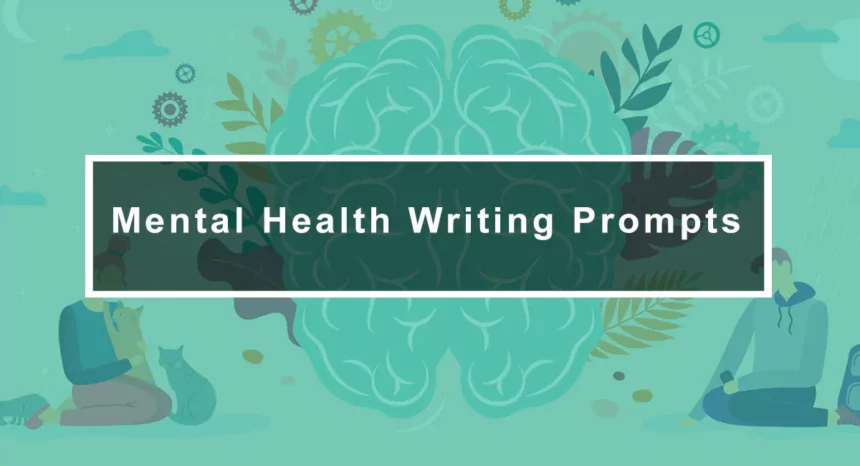
The journey of understanding and nurturing our mental well-being is both intricate and deeply personal. Mental health writing prompts provide a unique pathway, inviting introspection, facilitating healing, and fostering a deeper connection to oneself. By engaging with these prompts, individuals can navigate the myriad complexities of their emotions and experiences, translating them onto paper in a cathartic act of self-discovery.
Here are 25 mental health writing prompts designed to foster introspection and emotional well-being:
- Describe a moment when you felt most at peace. What were you doing? Who were you with?
- Write a letter to your younger self about the lessons you’ve learned regarding self-care.
- List five self-affirmations that resonate with you and explain why.
- Recall a time when you faced adversity and overcame it. How did it change you?
- What does self-love mean to you, and how do you practice it?
- Describe your ideal self-care day.
- Reflect on a moment when someone showed you kindness during a difficult time.
- Write about a negative thought pattern you want to break and how you plan to do so.
- Create a dialogue between your anxiety or fear and your rational side.
- List the things you’re grateful for and explain why.
- Reflect on a time you set a boundary, and it benefited your mental well-being.
- How has your understanding of your mental health evolved over the years?
- Write a letter to your future self, offering encouragement and wisdom.
- Describe an emotion you often struggle with and personify it.
- What activities or hobbies make you feel most grounded and why?
- Write about a time when you recognized you needed help and took action.
- Reflect on your personal growth in the past year.
- Describe the most calming place you’ve ever been to.
- List and detail coping mechanisms that work best for you.
- Write about a personal hero or role model who exemplifies resilience.
- What does “healing” look like to you?
- Reflect on a time when self-awareness helped you navigate a challenging situation.
- Describe a dream or aspiration that keeps you motivated during tough times.
- Write a letter to someone who supported you during a mental health challenge.
- Explore the relationship between your physical well-being and mental well-being.
Conclusion:
Navigating the world of mental health writing prompts empowers individuals to face their emotions head-on, allowing space for reflection, acceptance, and growth. Writing can be a potent tool, helping us untangle thoughts, celebrate victories, and confront challenges. May these prompts guide you on a transformative journey towards understanding, resilience, and healing.
Sign Up For Daily Newsletter
Be keep up get the latest breaking news delivered straight to your inbox., leave a reply cancel reply.
Your email address will not be published. Required fields are marked *
Save my name, email, and website in this browser for the next time I comment.
SUBSCRIBE NOW
Subscribe to our newsletter to get our newest articles instantly!
40 Best February Writing Prompts
50 inspiring poetry writing prompts.
Poetry, a canvas for the soul, invites us to explore the depth of human emotions …
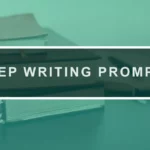
35 Deep Writing Prompts for Profound Reflections
In the realm of creative expression, delving deep into the complexities of existence, human nature, …

30 Engaging Dialogue Writing Prompts
In the realm of storytelling, dialogues breathe life into characters, giving them depth, personality, and …
Sign in to your account
Username or Email Address
Remember Me

- Mar 11, 2019
Creative Writing Prompts for Mental Health
Updated: Mar 12, 2019

There is plenty of great research proving that journaling and creative writing can improve mental, and even physical health. Writing is a powerful tool that can be used for so many things; making sense of difficult situations, identifying and understanding big emotions, easing loneliness, cultivating meaning, improving self-esteem, learning to forgive...the list goes on!
However, all writers can attest to the anxiety that a blank page can induce. It's a lot of pressure to sit down and figure out how to write something that improves your mental health. If you're not sure where to begin, skim through the following prompts and write to the prompt that speaks to you the mos
Personify your anxiety, panic, depression, or addiction. Give it a name, a voice, a physical form-human or otherwise. When your symptoms are at their worst, what is this being saying to you? What do you want to say back? (For some reason, my anxiety is an insidious green version of Mad Magazine's Spy vs. Spy pictured below. His name is Jeff).
Ten years from now, in a perfect world, who are you and what are you doing with your life?
What positive things are you doing in your life right now that you never get thanked for? How would things change if you started being appreciated for those actions?
Do you have ghosts?
Write about a time you meant to go one place, but ended up somewhere else.
Spend some time thinking about who your alter-ego might be. How does this person look/act/dress? What pieces of yourself does your alter-ego express?
Are there cycles or seasons to your life that you haven't thought about before? How do you know you are in one of these cycles/seasons?
What is terrifying?
What is awe-inspiring?
What are you f---ing mad about?
Here, at the tail end of winter in Denver and Summit County, many of us need a little boost in mood and energy to get us through to those warmer, sunnier summer months. Writing can be a great addition to your self-care practice, which is especially important during the darker, colder times of year.

Recent Posts
How to Resolve Relationship Conflict in 5 to 15 Minutes
The Power of Pause: Five ways to press that pause button (big or small)
Why Does Dating in Colorado Suck so Much?
Best Mental Health Journal Prompts in 2023

Being able to express yourself is an important part of good mental health. Unfortunately, it’s also something that doesn’t come easily to everyone. Keeping things bottled up and hidden away isn’t healthy, which is why writing as a form of self-expression can be so valuable for those struggling with their mental health. A journal is a great creative outlet for getting your thoughts onto paper (or tablet, computer, etc.). Writing about your thoughts and feelings can be cathartic, helping you deal with difficult situations or get your confidence back on track after a setback. Any type of writing is good for improving our mental well-being. Whether it’s writing about the things you love, the things that frustrate you, or anything in between – all forms of creative expression can positively affect your mental state. These mental health journal prompts will help you explore your mental state and feelings in a safe environment where there are no wrong answers.
144 Mental Health Journal Prompts
Do i hate anyone if so, why could i let that hate go.
Open Prompt
Who do I need to forgive in my life? What feelings am I holding onto from the past?
What do i need to forgive myself for how can i start that process, what is one way i can push myself out of my comfort zone in the new year, what do i fear most in life, are there any work problems i am trying to sort out now, what made me cry today, what is one good thing that happened to me today, what does having a fresh start mean to me, what do i want most from my friendships, what is one of the best compliments i have received how did that make me feel, what is one of my favorite ways to spend time with my child(ren), what is a happy moment i remember from my childhood, what causes me stress or anxiety during the holidays what could i do to make it better, what is one bad thing that happened to me today, if i could change one thing about yesterday, what would it be, what is one change i would like to make to my morning routine, what is one thing my child(ren) did today that i want to remember, what is my favorite holiday tradition what do i love about it, what is a challenge i faced today as a parent how did i deal with it, what thoughts did i have today that i wish i didn't have, how do i want to take care of myself in the new year, what gifts am i excited to give this holiday season, if money was no concern, where would i want to travel next, and why, who do i love in my life, what is one thing that came out of the covid-19 pandemic that i want to keep in my life, in what ways can i be healthier in the new year, what is the best professional compliment i have received, what are ways i can wind down and relax before sleep, what am i most looking forward to working on next week, what do i find the most challenging about being a parent, how can i give back more in the new year, what reasons cause me to eat besides hunger, when do i feel most confident, when do i remember feeling appreciated, what is my opinion on work-life balance what does that look like to me, what activity or hobby would i miss if i couldn't do it anymore, what does the new year mean to me, what can i change about my bedtime routine to have a more restful sleep, what obstacles do i face in taking better care of myself how can i overcome one of them, am i comfortable with my current work-life balance if not, what can i do to improve it, what lessons did i learn in the past year, what do i need to do to become a better person, i am most proud of . . ., how do i deal with feeling unmotivated, am i dwelling on anything right now, is there something i feel guilty about, what feelings does spring evoke, in what area of my life do i wish i had more autonomy, what is a physical feature of mine that i like, what qualities do i bring to a friendship, what is one of my favorite hobbies, and why, what would i like to subtract from my life in the new year, was there anything in my day that made me angry, who do i trust with my most painful and upsetting feelings, what small or big win in my work can i celebrate today, what is something i can do for myself today, how many months of savings would make me feel comfortable in my financial life, was there anything in my day that made me thankful, what do i want to add to my life in the new year, what can i be thankful for that i take for granted in my day-to-day life, do i think i am in the role or on the career path best for me, what made me laugh today, what do i consider my greatest professional success, what do i want to take from today into tomorrow, what qualities do i admire in my parents, if i could go back and change one decision, what would it be, what is one of my favorite family memories, what food or meal is a favorite from my childhood, who is someone i look up to, and why, what is one moment that i repeatedly go back to, and why, what is one way i think journaling could improve my life, what is one change i would like to make to my evening routine, what is something i can thank myself for, what personal needs am i sacrificing to meet the needs of others, what are ways i can practice self-care daily, what is something i love to do on cold winter nights, what is the best thing that happened today, what do i most enjoy about the holidays, is there anyone that deserves a big "thank you", how am i feeling on the way to my destination, what activity do i enjoy doing with a friend, what is my favorite holiday movie, and why, how does my significant other make me feel loved, what is something that is limiting me from accomplishing what i want to accomplish, am i happy with my work-from-home environment why or why not, what relationship do i need to work on, and how can i start that process, what made me smile today, what do i consider my greatest personal success, what is one of my key learnings from the past year, who were the most important people in my life in the past year, what was one of the most fun moments of my life, what challenges did i face in the past year, at what age did i feel grown-up, what am i grateful for at work, how do i want to grow in the new year, if i had to choose a single word or theme to describe the new year, what would it be, what is one of my favorite trips or vacations, who is someone i would like to treat better, what is one thing that i desire for my career, when i need help, is it easy or hard for me to ask for it, is the life that i am living the life i want, what were the funniest moments from my trip, what is something i am good at what makes me good at it, what do i want to celebrate from the past year, what do i want to let go of in the new year, what is one of my favorite holidays, and why, what is one of my favorite aspects of being a parent, what are my three biggest distractions right now, and how can i reduce them, what do i least enjoy about the holidays, did i learn anything about myself while on the trip, what would i do tomorrow if i had a free day, what is something i love now that i could never have imagined i would like in the past, remember a time when i was happy, and write about it., what am i grateful for today, what am i most excited about in the new year, what is something i do not like about my living environment how could i change it, with whom do i need to set boundaries, how did i grow in the past year, when was the last time i laughed uncontrollably, what is something i worry about that is outside of my control, when do my significant other and i have the most fun, when am i most at peace, what do i need to leave behind from the past year, how does my car make my life better, how does my pet make my life better, what is something i admire in one of my friends, what is the first thought that came into my mind this morning, what is one thing i am most grateful for from the past year, what can i learn from a mistake i have made, was there anything in my day that made me excited, what would make my younger self proud of me now, what qualities do i dislike in my parents, what is one way i add value to the world, who did i feel close to today, even for only a moment, what is something that can instantly disrupt a good mood and bring me down, what is something i am grateful for about myself, what music am i thankful to be able to listen to, and why, i wish i had someone with whom i could share . . ., where is one of my favorite places to be with my significant other, what difficult thoughts or emotions come up frequently for me, what does romance mean to me, what is one thing i admire about my significant other, what is one way i would like to get out of my comfort zone.
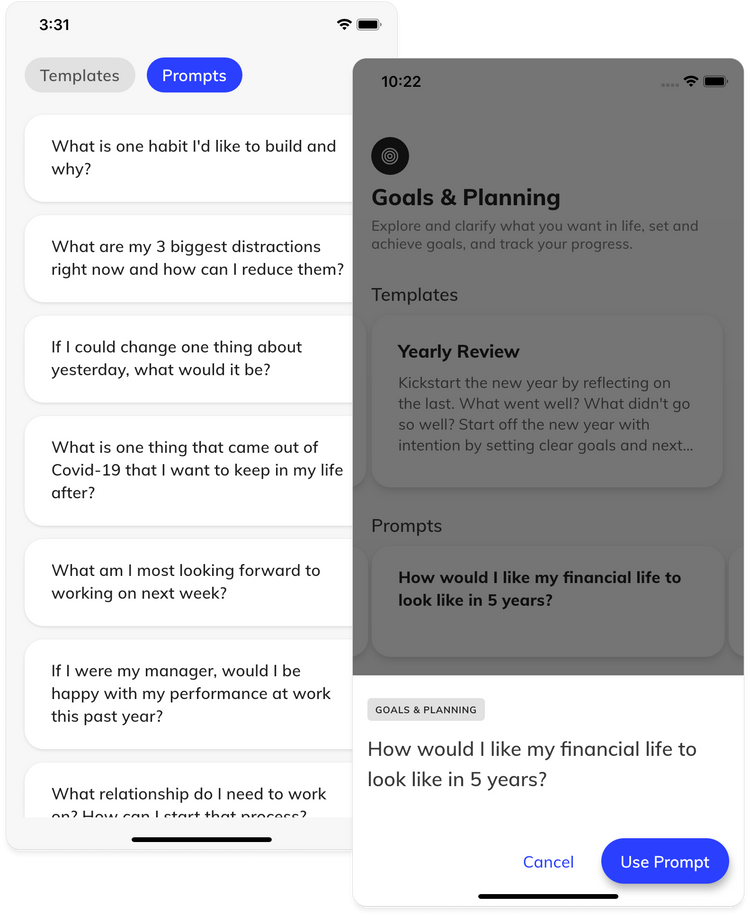
Discover more journaling prompts and become your best self with Clearful
Start a digital journal in Clearful to gain clarity and direct your life with intention.
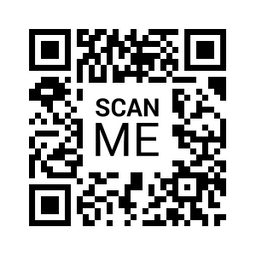
Point phone camera here
30 Best Journaling Prompts for Improving Mental Health

The journaling process involves the structured or free-form expression of thoughts, feelings, and experiences through written words. Using journal prompts enhances self-reflection and cognitive restructuring, leading to improved self-understanding and better emotional regulation (Smyth & Helm, 2003; Ullrich & Lutgendorf, 2002).
This simple yet profound activity can serve as a complementary tool to traditional therapeutic interventions, offering a range of benefits that can significantly enhance the therapeutic process.
Below, we will suggest several journaling prompts for your clients and when and where to apply them.
Before you continue, we thought you might like to download our three Gratitude Exercises for free . These detailed, science-based exercises will help you or your clients connect to more positive emotions and enjoy the benefits of gratitude.
This Article Contains
Journaling with prompts: 5 benefits, 8 daily self-reflection prompts for adults, 8 self-discovery prompts and questions, 5 mindfulness prompts for gratitude and self-love, 10 prompts and ideas for improving mental health, 4 most effective apps for journaling, 4 helpful books for your journey, resources from positivepsychology.com, a take-away message, frequently asked questions.
The integration of journal prompts offers a scaffolded approach to self-expression, potentially amplifying the therapeutic dividends of the practice.
These structured prompts can act as beacons, leading individuals through the tumultuous seas of their inner worlds, particularly when emotional turbulence threatens to overwhelm.
The act of systematically channeling emotions through guided writing prompts provides a means of catharsis, allowing for the release of pent-up feelings and facilitating a deeper understanding of oneself.
To learn more about the advantages of journaling, check out this article on the Benefits of Journaling for Mental Health .

People with a strong sense of self-awareness are better equipped to handle life’s challenges, make informed choices, and nurture personal relationships. By setting aside dedicated time each day to engage with their inner world introspectively, individuals can identify patterns, understand triggers, and navigate personal challenges with greater clarity.
Engaging in this practice allows adults to build a bridge between past experiences and present emotions, fostering growth and adaptive coping strategies.
Below are daily self-reflection journaling prompts to nurture these benefits and to end the day:
- Values check-in What values did I uphold today, and in which moments did I stray from them? How can I better align my actions with my core beliefs tomorrow?
- Learning corner What did I learn today — about myself, others, or the world around me?
- Interaction insight Which interaction today left the most significant impact on me? Was it positive or negative, and why?
- Dreams and desires What is one thing I deeply desire, and what steps can I take tomorrow toward achieving it?
- Barriers and solutions What obstacles did I face today, and how did I overcome them? If I didn’t, what can I do differently next time?
3 Journaling prompts to start the day
- Visualizing success How does my ideal day look today? From interactions to tasks, how would everything play out in the best possible way?
- Energy check On a scale from 1 to 10, how energized do I feel this morning? If it’s less than ideal, what can I do to boost my energy and mood?
- Daily inspiration What affirmation, quote, or song lyric inspires me today, and how can it guide my actions and mindset?
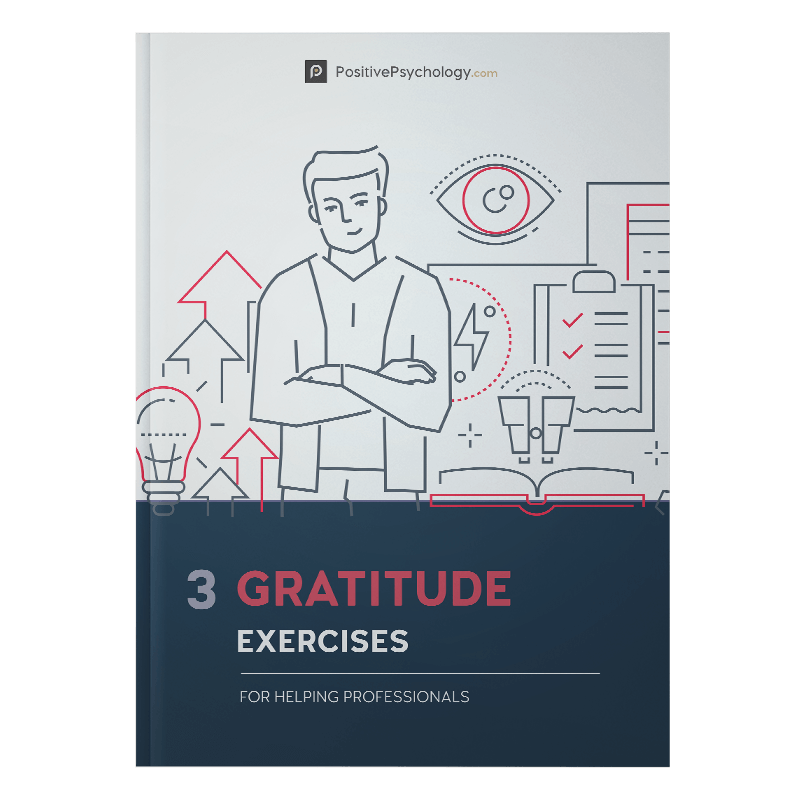
Download 3 Free Gratitude Exercises (PDF)
These detailed, science-based exercises will equip you or your clients with tools to build daily gratitude habits, express more appreciation toward others, and experience more positive emotions in everyday life.
Download Download 3 Gratitude Tools (PDF)
By filling out your name and email address below.
- Email Address *
- Your Expertise * Your expertise Therapy Coaching Education Counseling Business Healthcare Other
- Email This field is for validation purposes and should be left unchanged.
In the intricacies of adult life, the profound journey of self-discovery and finding purpose often takes a backseat. Yet, delving deep into our sense of self and understanding our desires, fears, values, and beliefs is paramount for creating meaning.
McAdams (2001) discussed the importance of conscious identity creation, suggesting that adults continually craft and revise the story of their lives, integrating past experiences with future purpose in life .
Individuals who reported a clear sense of meaning exhibited greater psychological wellbeing and were better equipped to handle life’s stressors (Steger et al., 2006). Using journaling techniques, we can intentionally thread together our own story that encourages coherence, purpose, and meaning to life.
Below are some self-discovery and meaning-making journaling prompts to begin the journey:
- Inner child reflection Think back to when you were a child. What activities or hobbies made you lose track of time? How can you incorporate those passions into your adult life?
- Future self-visualization Imagine yourself five years from now. What are you doing? Where are you living? How do you feel? What steps can you take now to align with this vision?
- Fear face-off What are three fears holding you back? What’s one small action you can take to challenge each fear?
- Gifts and talents What are three things you’re exceptionally good at? How can you use these strengths more in your daily life?
For more on journaling techniques, we recommend checking out this video.
4 Prompts for finding purpose
- Legacy creation If you were to leave a legacy behind, what would it be? How would you want to be remembered by your loved ones and the broader community?
- Passion pursuit What topic or cause ignites a fire in you? How can you dive deeper into this passion, and how might it align with a larger purpose?
- Life book If your life was a book, what would its central theme be? How do the chapters so far lead to a purpose-driven climax?
- Guiding principles What principles or philosophies resonate deeply with you? How can they guide you toward a purpose-filled life?

According to Kabat-Zinn (2005), cultivating mindfulness can lead to a deeper connection with the self and the world, fostering a sense of peace and balance.
The practice of gratitude can promote life satisfaction and overall wellbeing (Emmons & McCullough, 2003). Furthermore, self-love enhances self-acceptance and lower levels of psychological distress (Neff & Vonk, 2009).
Together, the trifecta of mindfulness, gratitude, and self-love provides individuals with the tools to navigate life’s challenges with grace, build meaningful relationships, and cultivate a deep sense of fulfillment.
The following mindfulness journaling prompts can help create a positive feedback loop that enhances overall wellbeing and life satisfaction:
- Treasure hunt in memories Close your eyes and travel back in time to a memory you’ve forgotten, a moment when you felt a simple joy. What can you thank your past self for in that moment?
- Body appreciation tour Start from the tips of your toes and move upward, pausing to express gratitude for each part of your body. Instead of focusing only on function, appreciate the stories and experiences each part holds.
- Gratitude in disguise Reflect on a recent challenge or setback. Instead of focusing on the negative, find one aspect to be thankful for. Did it bring a hidden blessing? Teach you resilience? Help you discover an inner strength?
- Mirror talk Stand in front of a mirror, look into your eyes, and list five things out loud you love about your personality. It’s a direct and powerful reaffirmation of self-worth.
- Nature’s gifts Spend a moment outdoors, feeling the air, listening to the sounds, and observing the life around you. Express gratitude for the intricate web of life and your unique place within it. How does nature reflect the love and abundance you hold within?
Mental health is intricately linked to every aspect of our lives, from physical health to professional productivity, and from personal relationships to overall life satisfaction.
Moreover, robust mental health serves as a protective factor, bolstering resilience during adversities, enhancing cognitive function, and promoting optimal emotional responses.
A study by Lyubomirsky et al. (2005) further elucidates that individuals with high levels of psychological wellbeing have better cardiovascular health, stronger immune function, and even increased longevity.
Given its profound implications, it becomes vital to place mental health at the forefront of our daily priorities, ensuring a life that’s not just lived, but truly cherished and enriched.
Download this tracking worksheet to help improve mental health.

5 Prompts for clients with depression and anxiety
By journaling about feelings that might be challenging to express verbally, clients can gain insight into their emotional states, recognize patterns in their thinking, and develop coping mechanisms.
Journaling can lead to significant improvements in mood disorders, reduced health visits, and enhanced cognitive functioning (Smyth & Pennebaker, 2008).
In the context of depression, where feelings of worthlessness or hopelessness might prevail, documenting achievements can be particularly empowering. Additionally, the structured and repetitive nature of journaling can serve as a grounding exercise , helping those with anxiety to anchor themselves in the present moment.
The following journaling prompts can be helpful for individuals grappling with depression and anxiety and those who want guidance to process emotions:
- Anxiety dialogue If your anxiety could speak, what would it say? How would you respond to it?
- Facing fears What’s one fear you encountered today? How did you cope, or what can you do differently next time?
- Success stories List small achievements or tasks you accomplished today.
- Emotional weather report If your current emotions were a type of weather, what would they be? Cloudy, stormy, sunny breaks?
- Comfort list Identify five things that always bring you comfort or peace. How can you incorporate one into your day tomorrow?
4 Journaling prompts for processing emotions
- Emotion mapping Describe your current emotion as if it were a place. What does it look, sound, and feel like?
- Letter to my emotion Write a letter to the emotion you’re feeling, whether it’s anger, sadness, joy, or confusion.
- The “why” deep dive Pick an emotion you felt today and ask yourself “why?” five times, diving deeper into the root cause.
- Future self-soothing What advice would a calm and centered future version of yourself give to your current emotional state?
Several mental health apps available today provide users with tools and resources to manage their symptoms and improve their overall mental health.
These apps often include features such as mood tracking, mindfulness exercises, relaxation techniques, cognitive reframing activities, and community support.
The following apps can also be helpful for journaling:

This user-friendly app allows for versatile journaling experiences. With the ability to include photos, voice recordings, and even location tags, it’s perfect for capturing memories or moods in a multi-sensory format.
Find the app in the Google Play store.
Find the app in the Apple App Store .
2. Reflectly

Using artificial intelligence, Reflectly tailors questions to guide your reflection process and helps you uncover deep insights about your emotions and thoughts over time.
3. Five Minute Journal

Based on the principles of positive psychology, this app focuses on gratitude, setting daily intentions, and reflection, all in a quick, easy-to-use format.

With its beautiful interface and cloud syncing capability, Journey supports multimedia entries and offers a safe, private space for your mental health reflections.
In addition to these excellent journaling apps, consider visiting our article listing the 11 Best Gratitude Apps to Increase Your Wellbeing .
The following are recommended books for your clinical library, some specifically on journaling and others on the self-discovery journey.
1. The Journal Writer’s Companion: Achieve Your Goals, Express Your Creativity, Realize Your Potential – Alyss Thomas

This book is designed as a clear and practical guide for using journaling to succeed in various areas of life.
It serves as a comprehensive reference to different journaling techniques, including gratitude journals , bullet journals, legacy journals, and art journals. The book aims to be the only guide needed for achieving personal and professional success through journaling.
With over 275 insightful prompts and exercises, this guide offers techniques to dive deep into self-reflection, helping readers tap into their creativity, understand themselves better, and live more mindfully.
Find the book on Amazon .
2. Soul Therapy: A 365 Day Journal for Self Exploration, Healing and Reflection – Jacqueline Kademian
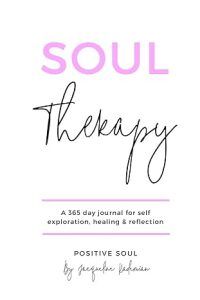
This daily, guided journal is aimed at facilitating self-exploration, healing, and reflection.
The journal features 365 days of thought-provoking journaling prompts, inspiring quotes, and open-ended questions. It also includes daily practices and motivational “soul food” with space for writing.
This journal is designed as a comprehensive tool for personal growth, encouraging users to delve deeper into self-understanding and personal development through guided journaling activities.
3. The New Diary: How to Use a Journal for Self-Guidance and Expanded Creativity – Tristine Rainer
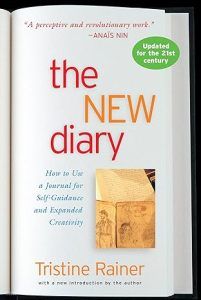
This comprehensive guide presents a modern approach to journal writing. It moves beyond traditional diary keeping, focusing instead on using a journal as a tool to tap into your inner resources.
This book is aimed at both experienced journal keepers and novices, offering various methods for using a diary to achieve personal goals, clarify visions for the future, and focus energy. It serves as a medium for unlocking intuition and imagination, and as a workbook for exploring dreams, past experiences, and current life situations.
The book is intended for anyone seeking practical ways to address personal issues and for those seeking self-reliance, inner liberation, and creative inspiration.
4. Journal to the Self: Twenty-Two Paths to Personal Growth – Kathleen Adams
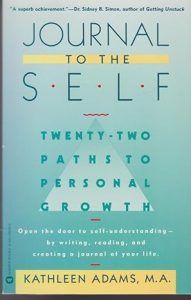
This roadmap to journaling offers a step-by-step method for personal growth, creative expression, and career enhancement.
Journal to the Self is a reader-friendly guide to journal keeping, seen as a rewarding path to greater self-awareness. It is described as a classic work in the field and is known for its practical and approachable style.
Adams, a nationally recognized therapist, provides various journaling techniques and insights, making it a valuable resource for those looking to explore the benefits of journal writing for personal development.
We also have a shortlist of the 5 Best Books of Gratitude , which includes Oliver Sacks’s Gratitude , for even more reading material.
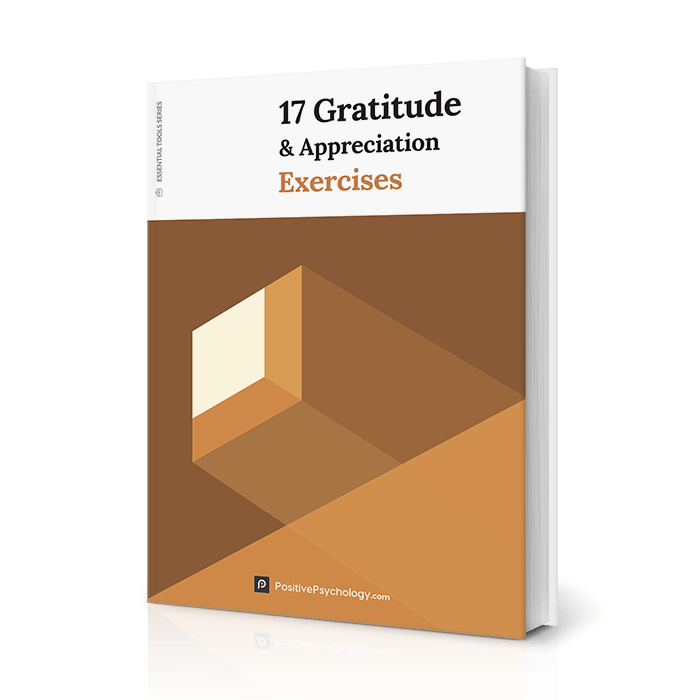
17 Exercises To Nurture Gratitude & Appreciation
Empower others with more hope, satisfaction, and fulfilling relationships with these 17 Gratitude & Appreciation Exercises [PDF] that harness the powerful benefits of gratitude.
Created by Experts. 100% Science-based.
On our site, we have a multitude of tools and articles to help on a client’s mental health journey.
Our Gratitude Journal: 66 Templates & Ideas for Daily Journaling provides methods and a format to begin exploring how to cultivate thankfulness and appreciation for life. This article contains various modalities to get started on a gratitude practice and maps out what benefits you can expect.
If you are more data driven and want to track affect and emotion, refer to our 7 Best Mood Trackers to Chart and Journal Your Mood . This article provides some of the best resources to begin monitoring and charting changes in mood and possible reasons for those shifts.
Likewise, refer to our 13 Self Reflection Worksheets & Templates to Use in Therapy if you would like your client to focus specifically on self-awareness skills. This article provides prompts, worksheets, tools, and other unique interventions to help clients reflect on their self-discovery journey.
If you’re looking for more science-based ways to help others harness the benefits of gratitude, check out this collection of 17 validated gratitude tools for practitioners. Use them to help others shift to a more positive mindset and experience the joys of life more deeply.
Journaling can offer a window into the inner workings of a client’s mind outside of the therapy room. By dissecting experiences and reflecting on them, individuals can gain clarity and develop more constructive strategies to tackle challenges (Pizarro, 2004).
This act of writing transcends mere documentation; it serves as a mirror, reflecting our deepest thoughts, fears, aspirations, and emotions. Through this reflection, individuals can discern patterns, confront traumas, celebrate triumphs, and most crucially, understand themselves on a profound level.
Journaling prompts encourage us to question, to challenge, and to dream. By consistently engaging with our inner narratives, we not only build self-awareness and emotional resilience but also cultivate a sense of purpose and direction.
The pen, in this context, becomes a powerful tool, not just for recording life but for shaping it.
We hope you enjoyed reading this article. Don’t forget to download our three Gratitude Exercises for free .
Starting a daily journaling practice can be achieved by following these steps:
- Set aside time daily to dedicate to journaling.
- Create a comfortable space.
- Begin with a journaling prompt.
- Be consistent.
Journaling exercises are structured activities or techniques used to explore particular themes, emotions, or experiences in depth.
While journaling is a personal activity, and there’s no one-size-fits-all approach, some general guidelines can enhance the experience:
- Be honest with yourself. Your journal is a safe space; be genuine in your entries.
- Don’t worry about perfection. It’s about expression, not crafting perfect prose.
- Write regularly. Even if it’s brief, regular writing helps in maintaining continuity.
- Reflect on past entries. Revisiting old entries can offer insights into personal growth and change.
Journaling activates the brain’s left hemisphere, which is analytical and rational, allowing the right hemisphere, associated with creativity and intuition, to explore freely and express.
Journaling also provides a therapeutic outlet, helping in the processing and management of emotions.
- Emmons, R. A., & McCullough, M. E. (2003). Counting blessings versus burdens: An experimental investigation of gratitude and subjective well-being in daily life. Journal of Personality and Social Psychology , 84 (2), 377–389.
- Kabat-Zinn, J. (2005). Wherever you go, there you are: Mindfulness meditation in everyday life . Hyperion.
- Lyubomirsky, S., King, L., & Diener, E. (2005). The benefits of frequent positive affect: Does happiness lead to success? Psychological Bulletin , 131 (6), 803–855.
- McAdams, D. P. (2001). The psychology of life stories. Review of General Psychology , 5 (2), 100–122.
- Morin, A. (2011). Self-awareness part 1: Definition, measures, effects, functions, and antecedents. Social and Personality Psychology Compass , 5 (10), 807–823.
- Neff, K. D., & Vonk, R. (2009). Self-compassion versus global self-esteem: Two different ways of relating to oneself. Journal of Personality , 77 (1), 23–50.
- Pizarro, J. (2004). The efficacy of art and writing therapy: Increasing positive mental health outcomes and participant retention after exposure to traumatic experience. Art Therapy , 21 (1), 5–12.
- Smyth, J. M., & Helm, R. (2003). Focused expressive writing as self-help for stress and trauma. Journal of Clinical Psychology , 59 (2), 227–235.
- Smyth, J. M., & Pennebaker, J. W. (2008). Exploring the boundary conditions of expressive writing: In search of the right recipe. British Journal of Health Psychology , 13 (1), 1–7.
- Steger, M. F., Frazier, P., Oishi, S., & Kaler, M. (2006). The Meaning in Life Questionnaire: Assessing the presence of and search for meaning in life. Journal of Counseling Psychology , 53 (1), 80–93.
- Ullrich, P. M., & Lutgendorf, S. K. (2002). Journaling about stressful events: Effects of cognitive processing and emotional expression. Annals of Behavioral Medicine , 24 (3), 244–250.
Share this article:
Article feedback
What our readers think.
Beautifully written article! I love these prompts, they can be so powerful!
Let us know your thoughts Cancel reply
Your email address will not be published.
Save my name, email, and website in this browser for the next time I comment.
Related articles

11 Best Gratitude Apps to Increase Your Wellbeing
Traditionally, the end of the year is a time of reflection and gratitude. It is a time to say thank you on Thanksgiving Day, a [...]

The Gratitude Journal: Prompts, PDFs, and Worksheets
The act of gratitude plays an important role in psychological wellbeing and self-actualization (Maslow, 1981). Regular expression of gratitude leads to increased feelings of happiness [...]

7 Gratitude Questionnaires and Scales That Scientists Use
Are happy people grateful? Or are grateful people happy? This debate has been present since the time of Socrates. Studies have shown that gratitude is [...]
Read other articles by their category
- Body & Brain (48)
- Coaching & Application (57)
- Compassion (26)
- Counseling (51)
- Emotional Intelligence (24)
- Gratitude (18)
- Grief & Bereavement (21)
- Happiness & SWB (40)
- Meaning & Values (26)
- Meditation (20)
- Mindfulness (45)
- Motivation & Goals (45)
- Optimism & Mindset (34)
- Positive CBT (27)
- Positive Communication (20)
- Positive Education (47)
- Positive Emotions (32)
- Positive Leadership (17)
- Positive Parenting (2)
- Positive Psychology (33)
- Positive Workplace (37)
- Productivity (16)
- Relationships (47)
- Resilience & Coping (35)
- Self Awareness (21)
- Self Esteem (37)
- Strengths & Virtues (30)
- Stress & Burnout Prevention (34)
- Theory & Books (46)
- Therapy Exercises (37)
- Types of Therapy (64)
- Comments This field is for validation purposes and should be left unchanged.
3 Gratitude Exercises Pack
Journal Prompts for Mental Health: 50 Questions to Answer
- Fact Checked
Written by:
- Eliana Galindo
published on:
- January 24, 2024
Updated on:
- January 17, 2024
Looking for a therapist?
Journaling has emerged as a valuable tool in the field of mental health, providing individuals with a reflective practice to explore their thoughts and emotions.
Writing can serve as a catalyst for personal growth and emotional healing , offering a private space for self-expression without judgment.
Through the use of journal prompts, people can focus on specific areas of their mental well-being, encouraging them to identify and navigate complex feelings and improve their overall mental health.
The application of structured writing prompts can help to break through the barriers that often keep individuals from engaging in traditional forms of therapy.
These prompts guide users to explore their inner world, helping them to uncover the root causes of their stress , anxiety , or depression .
By consistently responding to these guided prompts, individuals may develop greater self-awareness and discover new coping strategies contributing to better mental health outcomes.
Moreover, research supports the effectiveness of prompted journaling as a complement to mental health interventions.
Explore emotional well-being with BetterHelp – your partner in affordable online therapy. With 30,000+ licensed therapists and plans starting from only $65 per week, BetterHelp makes self-care accessible to all. Complete the questionnaire to match with the right therapist.
Understanding Journaling for Mental Health
Journaling for mental health is a practice that involves reflecting and writing down thoughts and feelings, which can provide psychological benefits by serving as an emotional outlet and a tool for self-discovery.
Basics of Journaling
Journaling is the process of recording personal insights, emotions, and experiences regularly.
It often involves responding to journal prompts – questions or topics that guide the writer to explore their thoughts and feelings in a focused way.
For those new to journaling, understanding its structure and purpose is key.
An entry doesn’t need to be lengthy. Sometimes, a few sentences can capture the essence of one’s current state or a response to a prompt related to mental health.
Benefits of Mental Health Journaling
Mental health journaling can be especially beneficial for managing stress, anxiety, and other mood disorders. It provides individuals with a private space to express themselves without judgment.
This form of journaling encourages mindfulness and can help individuals identify and process their emotions, recognize triggers, and establish coping strategies.
It can serve as a form of self-therapy , where one might see patterns over time and gain insights into their own behavior and thought processes.
Studies like those from the Pandemic Journaling Project indicate that online journaling can play a significant role in understanding and managing mental health during challenging times .
Exploring Different Journal Types
In the realm of mental health, journaling serves as a potent tool for self-reflection and emotional management .
Different types of journals cater to specific needs , whether cultivating appreciation for life’s positives, understanding and processing emotions, or managing stress and anxiety.
Gratitude Journals
Gratitude journals focus on the positive aspects of daily life , aiming to enhance one’s sense of well-being. Journal prompts may include listing things one is thankful for or reflecting on positive encounters.
Consistent writing in a gratitude journal can shift focus from negative preoccupations to feelings of contentment and gratitude, potentially reducing feelings of anxiety over time.
Emotion-Focused Journals
These journals are pivotal for individuals who wish to delve deeper into their emotional state.
They often involve prompts that encourage users to articulate their immediate emotions , analyze the thoughts driving these emotions, and explore possible reactions or coping mechanisms.
Emotion-focused journals assist in recognizing patterns in emotional responses and fostering a greater understanding of triggers and reactions.
Stress and Anxiety Journals
Journals targeting stress and anxiety are valuable tools for identifying and managing sources of discomfort.
They might include prompts that ask individuals to describe stressful incidents, rate their level of anxiety, and note coping strategies that were effective or ineffective.
By routinely engaging with these journals, people gain insights into their stressors and learn to manage their responses more constructively.
50 Questions to Answer
This section presenta 50 thoughtfully crafted journal prompts designed to guide you on an introspective path .
These prompts are more than ink on paper; they’re gateways to self-discovery , resilience , and a deeper understanding of your mental landscape.
Whether you’re looking to enhance your journaling practice, seeking clarity, or simply nurturing your mental health, these prompts offer a gentle invitation to explore the richness within.
Remember, regularly engaging in journaling can provide valuable insights and contribute to overall mental well-being .
Additional Resources
Online therapy.
Discover a path to emotional well-being with BetterHelp – your partner in convenient and affordable online therapy. With a vast network of 30,000+ licensed therapists, they’re committed to helping you find the one to support your needs. Take advantage of their Free Online Assessment, and connect with a therapist who truly understands you. Begin your journey today.
Relationship Counceling
Whether you’re facing communication challenges, trust issues, or simply seeking to strengthen your connection, ReGain’ s experienced therapists are here to guide you and your partner toward a healthier, happier connection from the comfort of your own space. Get started.
Therapist Directory
Discover the perfect therapist who aligns with your goals and preferences, allowing you to take charge of your mental health. Whether you’re searching for a specialist based on your unique needs, experience level, insurance coverage, budget, or location, our user-friendly platform has you covered. Search here.
About the author
You might also be interested in
Group Therapy: Effective Techniques and Benefits Explored
Cognitive Behavioral Therapy for ADHD: A Concise Guide
What is LCSW: Understanding Licensed Clinical Social Work
Disclaimers
Online Therapy, Your Way
Follow us on social media
We may receive a commission if you click on and become a paying customer of a therapy service that we mention.
The information contained in Find A Therapist is general in nature and is not medical advice. Please seek immediate in-person help if you are in a crisis situation.
Therapy Categories
More information
If you are in a life threatening situation – don’t use this site. Call +1 (800) 273-8255 or check these resources to get immediate help.

join the list
Join 4,000+ ambitious women ready to redefine success and put an end to toxic hustle culture. , get on the list.
Sign up to get productivity, intentional living and self-care tips so you can go from "busy" to "present" and tap into a slower life that prioritizes your energy and peace
Ultimate Guide to Creative Writing Therapy (with Writing Therapy Prompts)
March 22, 2023

I believe that taking care of yourself should always come first. So, my job is to help you create a slow and mindful life that aligns with your values and goals so you can finally go from a state of constantly doing to peacefully being.

5-Minute Wellness Habit Tracker That *Actually* Works
This super customizable and in-depth wellness habit tracker is specifically designed to help you protect your time, have blissful boundaries, achieve your goals, and be extra productive every day so you can finally go from overwhelmed to organized in just 5 minutes/day.
join the movement
Sign up to get productivity, intentional living and self-care tips so you can tap into a slower life and go from constantly doing to peacefully being.

Creative writing therapy, or therapeutic writing is a form of therapeutic intervention that uses writing as the tool to explore and express your thoughts, feelings and emotions. It’s also known as journal therapy – and it’s essentially the art of writing in a journal to heal yourself.
Writing therapy can be a useful tool for people who struggle with mental health, have experienced trauma or grief, or are simply looking for a creative outlet to process their thoughts and feelings. Today we’re going to explore what creative writing therapy is, how it works, and the potential benefits of writing therapy. We’ll also share writing therapy prompts to help you get started and explore writing therapy today.
Please keep in mind that there is no true substitute for seeing a licensed therapist, and if you feel like you could benefit from talking to someone and getting help with what you’re going through – you’re not alone! There are tons of incredible therapists out there to help you. Here at Made with Lemons we’re big advocates for therapy and if you’d like a more inside scoop to our own journey with therapy, join On Your Terms . It’s a wellness newsletter that shares a more inside look to our own wellness journey as well as tools to help you along yours. Learn more about On Your Terms here.
Get productivity, intentional living and self-care tips so you can go from “busy” to “present” and show up as your best self.
What is Creative Writing Therapy?
Writing therapy, also known as therapeutic writing, is a form of creative and expressive therapy that involves writing about your personal experiences, thoughts and feelings. It can take many forms, including journaling, poetry, creative writing, letter writing, or memoirs. Writing therapy can be done individually or in a group setting. It can also be facilitated by a therapist, counselor or writing coach.
The purpose of creative writing therapy is to help you express and process your emotions in a safe and supportive environment. It’s helpful to be able to write out your thoughts and feelings that might be hard to articulate in other ways.
You might also see therapeutic writing used to help explore issues that are difficult to discuss in traditionally talking therapy sessions. And when your therapist invites you to try writing therapy, it’s also used in conjunction with other forms of therapy, such as trauma-focused therapy, to enhance its effectiveness.
An example of creative writing therapy could be writing a letter to a person who hurt you, and then shredding or burning the letter to release some of the hurt and anger.
How Does Therapeutic Writing Work?
Writing therapy works by allowing individuals to express their thoughts and feelings in a way that is both private and creative. The act of writing can help you organize your thoughts and gain clarity on your emotions. Writing can also be a way to release pent-up emotions and relieve stress.
For example, if you’re feeling stressed after a long day of work, taking a few moments to write down what’s stressing you out and allowing yourself to let it go, can help you have a calm and more relaxing evening.
Writing therapy should be a truly non judgemental space. It’s a time to write without worrying about grammar, punctuation, or spelling. The goal here is to let words flow freely, without judgment or criticism. Creative writing therapy sessions can be structured or unstructured, and sometimes it’s helpful to use prompts or exercises to help you get started. (i.e. what in your life is bringing you the most anxiety, or writing a letter to your friend to express ___________ hurt you when they said that.)
Oftentimes we find it easier to write about our hurt, our pain and the experiences that caused that, as opposed to opening up to talk about those things. In this way, writing can be a way to explore and process complex emotions such as grief or anger in a safe and supportive environment, where no one can get hurt further by what’s being felt and expressed.
Potential Benefits of Writing Therapy
Now let’s talk about some of the benefits of therapeutic writing.
Improved mental health
Writing therapy can be a tool that helps you manage symptoms of depression, anxiety and other mental health conditions. You can use journaling therapy to express and process difficult emotions, which over time can lead to improved mental regulation and a better sense of control over your thoughts and feelings.
Increased self-awareness
Creative writing therapy can help you gain a better insight into your thoughts and behaviors. By reflecting on your experiences through writing, you can start to identify patterns and gain an understanding of yourself.
Stress relief
Therapeutic writing can be a way to relieve stress and reduce anxiety. Writing is often cathartic, allowing you to release pent-up emotions and start to feel relief from things that would otherwise feel overwhelming.
Improved communication skills
Journal therapy can also help you improve your overall communication skills. When you practice expressing yourself through writing, you can develop more confidence to communicate more effectively in both your personal and professional relationships. In essence, writing your feelings can help you communicate them better when needed.
Increased creativity
Lastly, creative writing therapy can also be a way to tap into your creativity and imagination. We talk a lot about your inner child around here, and journal therapy can be another helpful way you can interact with your inner child. Through writing you can explore new ideas and perspectives, leading to your own personal growth.
How to try Creative Writing Therapy Today
Now let’s talk about how you can try therapeutic writing for yourself today. These tips are going to help you get started with writing therapy from home, as a personal activity to help heal yourself.
Set aside dedicated time for writing therapy
Like most self improvement and self care techniques, it helps to set aside a dedicated time to write regularly. We know this can be a challenging task, especially if you’re struggling with mental health issues or challenges in your life. A good place to start is to set aside a few minutes each evening to write and decompress from your day. It can be just 2 minutes before bed. Remember, therapeutic writing is a non judgemental activity, so the amount of time you dedicate isn’t important, it’s just important to show up for yourself.
Find a quiet and comfortable space
Find a place that’s quiet and comfortable, and where you can write without interruptions. Some people find it helpful to create a writing ritual, such as lighting a candle or playing soft music to create a sense of calm and focus. Find what works for you, in a space where you can be alone for a few minutes.
Choose a writing therapy prompt or topic
At the end of this guide we’re going to share writing therapy prompts to help you explore creative writing therapy and give you a starting point. You can also talk to your therapist to get prompts, or find some online. Prompts can be general, such as “write about what makes you grateful or happy”, while others can be more specific, such as “write about a time that you felt overwhelmed.”
Write freely and without judgment
The most important thing about writing therapy is to write freely, without judging yourself. Allow yourself to write without worrying about grammar, punctuation or spelling. Don’t put a time limit on your writing, or feel like you have to write a certain number of words or pages. The goal here is to allow your thoughts and emotions to flow freely without any judgment at all.
Write honestly and openly
Along with being judgment free, it’s also so important that you write honestly and openly. Writing therapy is a space for honesty and openness. This space is created for you to share your thoughts and emotions, even if they're difficult or uncomfortable to confront. Just be open to exploring them, and remember that you don’t have to share this with anyone, so it’s a space where you can be fully honest with yourself.
Reflect on your writing
After writing, you can take a few moments to reflect on what you have written. It might even be helpful to come back to what you have written at another time, when you have a clear head or have left the emotions behind. This can help you consider the emotions and patterns that you have expressed. Doing this reflection can help you gain more insight into your thinking patterns and emotions for future sessions.
Consider sharing your writing with a therapist or counselor
Lastly, consider sharing your writing with a therapist or counselor. They can help you process emotions and gain a deeper understanding of yourself. Sharing your writing can also help you feel less alone in your struggles and provide important validation for your experiences.
20 Writing Therapy Prompts
- When do I feel the most like myself?
- How do I feel at this moment?
- What do I need more of in my life?
- What do I look forward to every day?
- What is a lesson that I had to learn recently?
- Based on my daily routine, where do I see myself in 5 years?
- What don’t I regret?
- What would make me happy right now?
- What has been the hardest thing to forgive myself for?
- What’s bothering me? And why?
- What do I love about myself?
- What are my priorities right now?
- What does my ideal day look like?
- What does my ideal morning look like? Evening?
- Make a list of 30 things that make you smile
- Make a gratitude list
- The words I’d like to live by are…
- I really wish others knew this about me…
- What always brings tears to my eyes?
- What do I need to get off my chest today?
Creative writing therapy can be a powerful tool for exploring and processing thoughts and emotions. When you set aside a dedicated time to write, and create a safe and supportive space for yourself, you can gain insight into your emotions and develop better tools to manage them. With practice and commitment, writing therapy can become a habit for your self care routine.
If you’d like to build the habit of writing therapy in your own life, then we’d like to invite you to download our habit tracker. It’s super easy to use, beautifully designed and completely free. All you need is a google account to access it. Grab a copy of our habit tracker here.
+ show Comments
- Hide Comments
add a comment
How to Create the Perfect Anti “That Girl” Morning Routine in Less Than One Hour »
« Revamp Your Life This Spring: The Ultimate Spring Reset Guide
Previous Post
back to blog home

Summer of Self-Care (60 Solo Date Ideas for Summer 2023)

How to Live a Sober Life (70 Ways to Practice Sober Self-Care)

A Complete Guide to Mushroom Microdosing

Self Love Ideas Based on Your Love Language

Glowy Skincare Routine: How to Get Naturally Glowing Skin From Home

What vitamins should I be taking to optimize health and increase energy?
so hot right now
This super customizable and in-depth wellness habit tracker is designed to help you protect your time, achieve your goals, and be more productive every day so you can finally go from overwhelmed to organized in just 5 minutes.
Wellness Habit Tracker

Ready to success and put an end to toxic hustle culture?
Get productivity, intentional living and self-care tips so you can go from "busy" to "present" and show up as your best self in life and business in this weekly newsletter.
Do you sleep 7-8+ hours but feel exhausted? Does resting feel selfish and unproductive? Get your free download to find out about the 7 types of rest and why you'll burnout without it.
7 Types of Rest You Need
FREE DOWNLOAD

3 Steps to Avoid Burnout & Create More Intentionality in Your Life and Business
free class!

Come say hi on the 'gram!
apply for 1:1 coaching
GET my newsletter
© MADE WITH LEMONS 2020- 2023 | Privacy Policy | Terms & CONDITIONS | Design by Tonic
London-based multi-passionate Lifestyle designer for busy female entrepreneurs, lover of Golden Retrievers, skin care obsessed, & proud plant mom.

Learn from me
@madewithlemonsco

Your Information is 100% Secure And Will Never Be Shared With Anyone. You can unsubscribe at any time. By submitting this form you confirm you have read our privacy policy and you accept our terms and conditions

Join the anti-hustle movement!
Your Information is 100% Secure And Will Never Be Shared With Anyone. You can unsubscribe at any time.
Journaling For Mental Health: How To Do It Effectively To Improve Mood And Well-Being
Here's what the science says.

“Journaling can be a powerful way to organize your thoughts, feelings, and ideas, leading to increased self-awareness, self-discovery, and growth,” says Jaci Witmer Lopez, PsyD, a licensed clinical psychologist based in New York City. “In my practice, I've seen firsthand how regular journaling can transform lives.”
Maybe you've kept a fitness journal in the past to help you stay on track toward your wellness goals, or you currently have a gratitude journal to stay grounded. There are travel journals to help you document your adventures, and if you’re less artistically inclined, there are even journaling apps to help you stay mindful on the go. Below, experts share the benefits of journaling for mental health, how to start one yourself, and specific writing prompts for inspiration.
Meet the experts: Jaci Witmer Lopez, PsyD , is a clinical psychologist based in New York City. Marc Campbell, LMHC , is a licensed therapist based in Orlando, Florida, and the author of I Love My Queer Kid .
Common Benefits Of Journaling
Apart from having a dedicated place for juicy diary entries, there are several general benefits of journaling. The practice has been shown to help people process stressful events, according to a study published in Annals of Behavioral Medicine . In another study about college students, researchers found that journaling may improve self-efficacy —in other words, it can help you believe in yourself. Writing has even been studied as a behavioral intervention for children—so if you have kiddos at home, encouraging them to write may not be such a bad idea.
Common benefits of journaling include:
- Finding inspiration
- Creative expression
- Tracking your goals
- Fun freewriting
- General reflection
- Brainstorming ideas
5 Mental Health Benefits Of Journaling
Apart from its general benefits, here's how journaling can impact your mental health, specifically, according to experts.
1. It can help you process (and learn from) your emotions.
“Remembering the events from your day—both the ups and the downs—can help your brain practice processing and regulating your emotions,” says Marc Campbell, LMHC, a licensed therapist based in Orlando, Florida. For instance, if you’re feeling rejected from a recent breakup or you're burned out at work, writing about how you feel and reading it back to yourself can help you process the difficult emotions. Journaling can also help you recognize certain patterns, practice more acceptance, and have more empathy for yourself, Campbell says.
2. It can help you heal from traumatic events.
Journaling can significantly impact your ability to process and heal from trauma, Lopez says. “ Research has shown that writing can reduce symptoms of depression, anxiety, and post-traumatic stress disorder (PTSD),” she says. “When you write things down as opposed to just thinking about them, you hold yourself accountable to reframing or changing your narrative.” Although the mental health effects of trauma won’t disappear by simply writing down how you feel, journaling can be a helpful practice in addition to seeking therapy and trauma treatment .
3. It may help you manage anxiety and depression.
Anxiety and depression are among the most commonly cited mental health struggles in America, per the American Psychological Association (APA). And although having a writing practice won't cure these conditions overnight, journaling may have the potential to decrease depression and anxiety and improve resilience over time, according to a recent study . Plus, if you’re struggling to find meaning in everyday life or you feel generally disengaged—both of which are common experiences when facing mental health challenges— some studies suggest that journaling may help.
4. It can help you track your therapy progress.
If you're seeing a therapist right now, journaling can help you check in with yourself daily or weekly about how it’s going—or even help you hold yourself accountable for certain behaviors you’d like to change, Campbell says. “Through the process of journaling, you can reflect on past entries and potentially learn about any patterns you have,” he says.
You can also use a journal to reflect on what, exactly you speak about during your therapy sessions and begin to process how you’re feeling about it, Lopez adds. An added benefit? One day, you can look back at your journal and celebrate how far you've come.
5. It can help you practice self-compassion.
Whether you're dealing with a specific mental health issue or you're simply feeling overwhelmed, negative self-talk, shame, and embarrassment are common. It can be difficult to be kind to yourself, however, practicing self-compassion can go a long way, experts say. A recent study in the American Journal of Speech-Language Pathology found that daily journaling as a mindfulness practice led to increased levels of self-compassion, and another study on registered nurses found that journaling can boost compassion and help manage burnout.
How To Start Journaling For Mental Health
If you aren't someone who spilled your heart out in a childhood diary, don't worry—journaling can be as simple as jotting things down on your phone, in a notebook, or responding to a specific prompt to get inspiration (more on that soon).
There’s no “right” or “wrong” way to journal, but it should be a personal process, Campbell says. “I recommend starting journaling in the way that feels most authentic to you. If you prefer pen and paper, start with that. If you prefer typing things out in your notes app, that works, too. If you aren’t sure, try both and more—a laptop or even typewriter if you’re feeling adventurous,” he says. Also, writing for mental health is personal, but you shouldn't feel pressured to document your whole life story all at once (unless you want to).
Whether you incorporate journaling into your morning routine or you attempt five minutes before bedtime to free-write, experts recommend starting slow. “If you're new to journaling, my advice is to start small and be patient with yourself. Set aside just a few minutes a day to begin with, and gradually increase the time as you build the habit. It’s important to find a method that you'll stick with consistently," Lopez says. Try to pace yourself and make the practice as manageable as possible so that it becomes a habit formed over time, she adds.
10 Journal Prompts For Mental Health
- What was the highlight of my day?
- What was a lot moment of my day?
- What's a challenge I'm facing right now?
- What people, places, or things am I grateful for and why?
- Who is someone that's inspired me lately and why?
- What are three things I'm proud of myself for, and why?
- What is a small act of kindness I can do for myself this week?
- What is one limiting belief I have about myself? (And is there a way I can begin to reframe it)?
- Describe something you are struggling with. Then, read it from the perspective of someone you care about. What would they have to say about it?
- If I could change an aspect of my mental health and well-being right now, what would it be and why?
When it comes to journaling for mental health, consistency is key. Whatever method, prompt, or format you choose, your mental health will thank you.
Best Journals For Mental Health

The Five Minute Journal
Looking for a simple, sleek journal that will help you practice more mindfulness and gratitude? This popular option might be a good fit for you. It encourages you to cultivate a sense of calm for just five minutes a day, but there are plenty of helpful tools packed into the journal itself—like prompts, daily highlights, weekly challenges, affirmations, and more. If you're brand new to journaling for mental health, this one provides clear cues and outlines to help you self-reflect and feel more confident. Plus, it's aesthetically pleasing. What could be better?
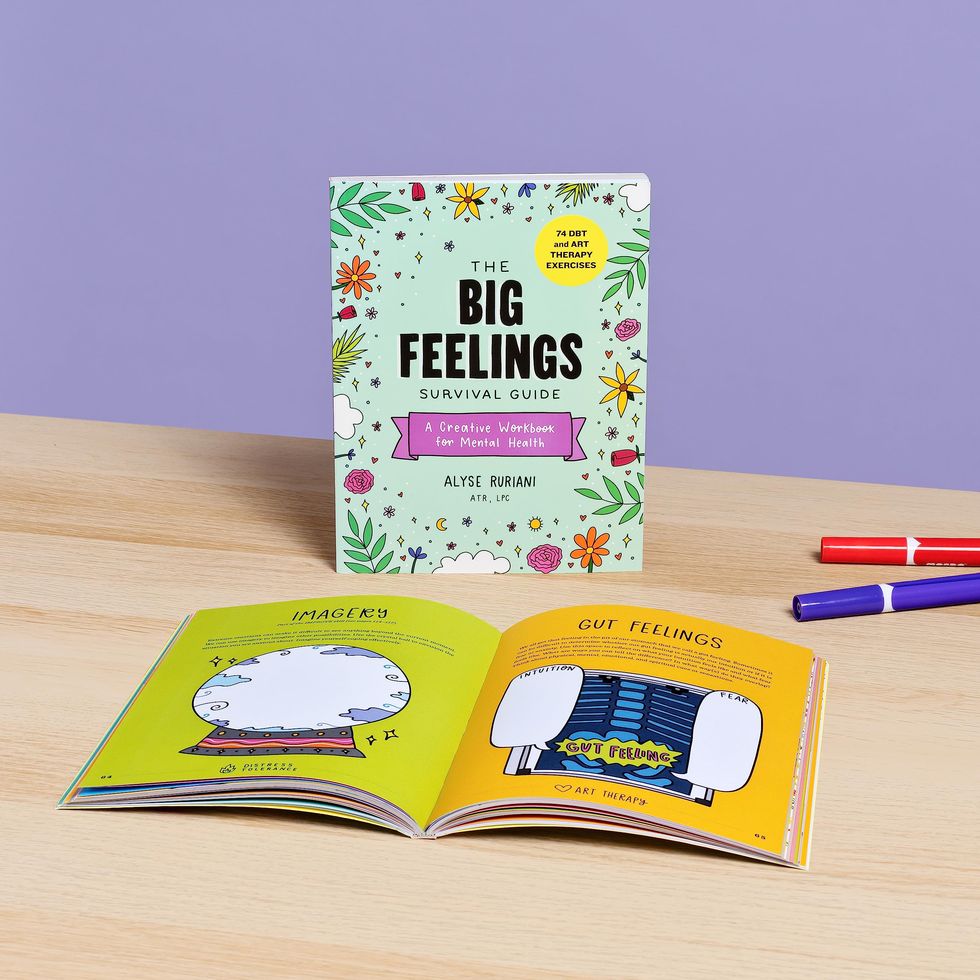
The Big Feelings Survival Guide
This colorful, activity-filled workbook by licensed art therapist Alyse Ruriani, LPC, is a great option if you're ready to dive into mental health in a fun, accessible, yet meaningful way. The workbook includes practical and creative activities that are all rooted in dialectical behavior therapy (DBT), which, ICYMI, is a revolutionary treatment that helps people move through emotions. Not only will you gain major insight about your mental health journey, but the workbook itself is super bright and engaging—the helpful illustrations and eye-opening exercises are sure to help you reflect and gain inspiration.
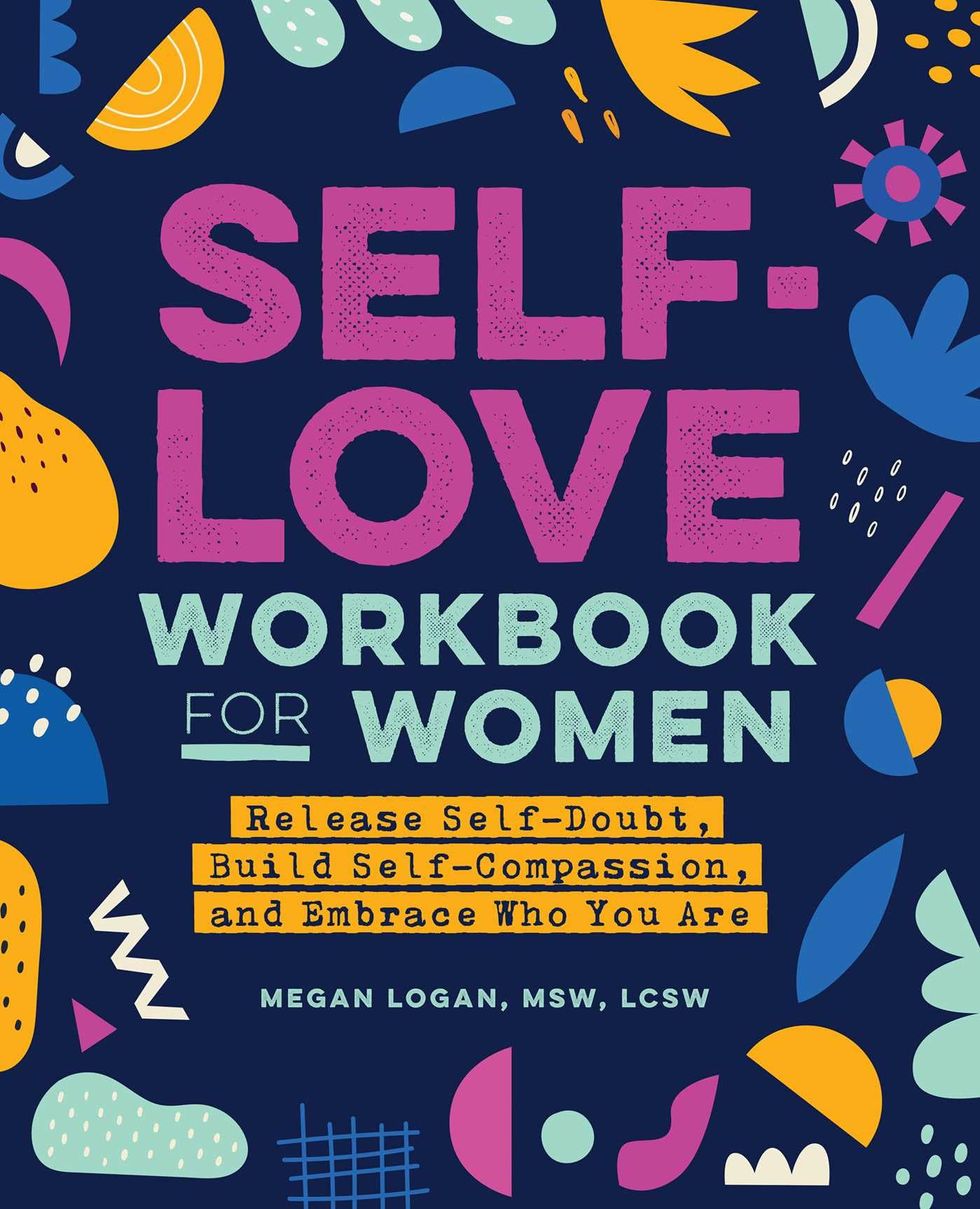
Self-Love Workbook for Women
This self-love workbook by therapist Megan Logan, LCSW, is uniquely designed to help you release self-doubt and have more self-compassion. The journal includes quizzes, writing prompts, and fun activities to help you cultivate more self-love, like writing a message to your younger self and making a "happy playlist." You'll also find empowering affirmations for those days when your mental health isn't so good—plus, the journal provides helpful resources for goal-tracking, identifying emotions, and embracing who you are.
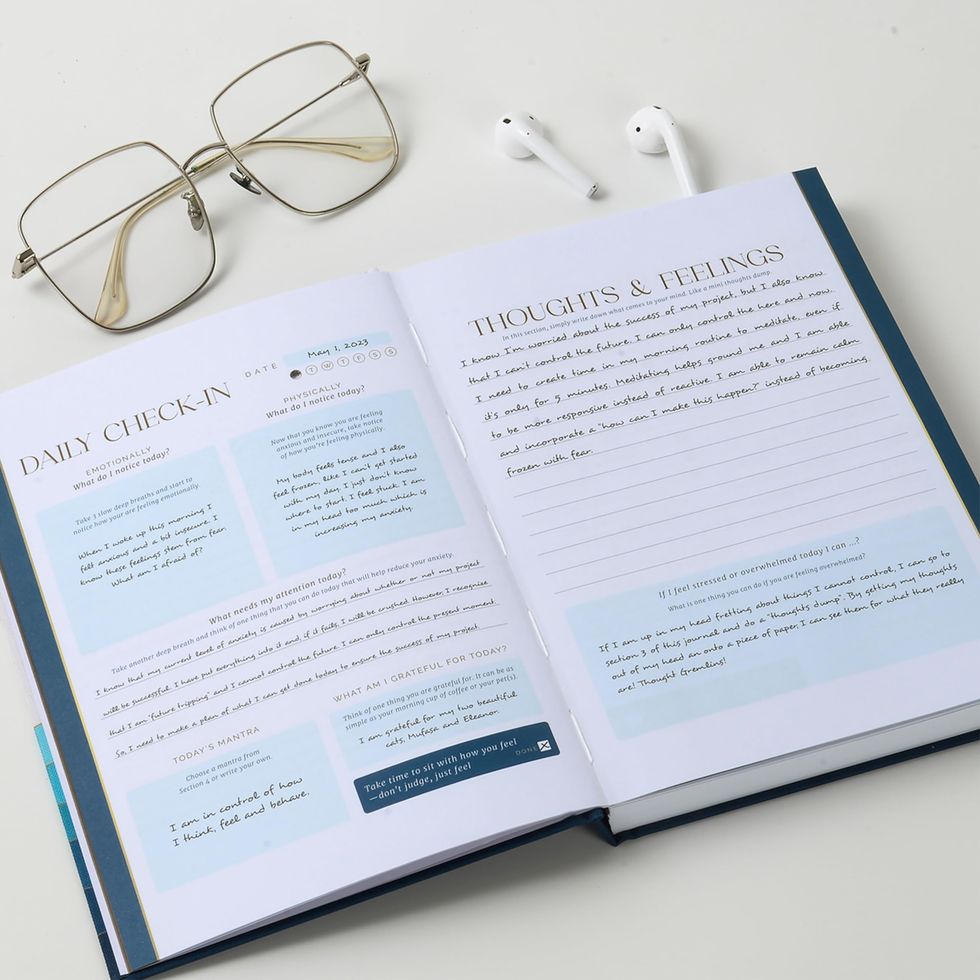
90-Day Mental Health Journal
This easy-to-follow journal encourages you to care for your mental health in a holistic way. If you're dealing with stress, anxiety, or uncertainty about the future, the journal claims to help you self-reflect and gain self-awareness while focusing on the power of the present moment. This journal is ideal for anyone who wants to breathe, reconnect with themselves, and cultivate more mindfulness. It comes with grounding activities and daily check-ins to help you keep track of your emotions—and understand their roots.
Lexi Inks (she/her) is a lifestyle journalist based in Jacksonville, Florida. She has reported on countless topics, including sexual wellness, astrology, relationship issues, non-monogamy, mental health, pop culture, and more. In addition to Women’s Health, her work has been published on Bustle, Cosmopolitan, Well + Good, Byrdie, Popsugar, and others. As a queer and plus-size woman with living with mental illness, Lexi strives for intersectionality and representation in all of her writing. She holds a BFA in Musical Theatre from Jacksonville University, which she has chosen to make everyone’s problem.
Mental Health

20 Best Guided Journals For Your Wellness Journey

‘I Had SCAD As A Healthy, Fit 36-Year-Old Woman’

'How I Trained For An Ironman With Parkinson's'

WNBA's Diamond DeShields Reflects On Spinal Tumor

'I Did 7 Marathons In 7 Days With Type 1 Diabetes'

'Ultra-Running Helps Me Cope With Lupus Symptoms'

‘What It's Like To Be A Dancer With Hearing Loss’

'How I Progressed To Deadlift 375 Pounds'

What Is Anticipatory Grief?

What Is Body Neutrality, Exactly? Experts Weigh In

Why Don’t We Prescribe Exercise For Mental Health?
- SUGGESTED TOPICS
- The Magazine
- Newsletters
- Managing Yourself
- Managing Teams
- Work-life Balance
- The Big Idea
- Data & Visuals
- Reading Lists
- Case Selections
- HBR Learning
- Topic Feeds
- Account Settings
- Email Preferences
Writing Can Help Us Heal from Trauma
- Deborah Siegel-Acevedo

Three prompts to get started.
Why does a writing intervention work? While it may seem counterintuitive that writing about negative experiences has a positive effect, some have posited that narrating the story of a past negative event or an ongoing anxiety “frees up” cognitive resources. Research suggests that trauma damages brain tissue, but that when people translate their emotional experience into words, they may be changing the way it is organized in the brain. This matters, both personally and professionally. In a moment still permeated with epic stress and loss, we need to call in all possible supports. So, what does this look like in practice, and how can you put this powerful tool into effect? The author offers three practices, with prompts, to get you started.
Even as we inoculate our bodies and seemingly move out of the pandemic, psychologically we are still moving through it. We owe it to ourselves — and our coworkers — to make space for processing this individual and collective trauma. A recent op-ed in the New York Times Sunday Review affirms what I, as a writer and professor of writing, have witnessed repeatedly, up close: expressive writing can heal us.
- Deborah Siegel-Acevedo is an author , TEDx speaker, and founder of Bold Voice Collaborative , an organization fostering growth, resilience, and community through storytelling for individuals and organizations. An adjunct faculty member at DePaul University’s College of Communication, her writing has appeared in venues including The Washington Post, The Guardian, and CNN.com.
Partner Center

Mental Health Resources for Creative Writers

Written by Jack Levinson

When people think of creative writers, they often imagine the stereotypical “tortured artist,” who channels their inner strife into beautiful works of expression. It’s true: many great writers draw from their moments of difficulty to find inspiration and tell stories that are impactful to others. But this doesn’t mean that writers should be less concerned with preserving their mental health than others are. In fact, many would argue that the life of a creative writer requires an especially large amount of discipline, fortitude, and faith – all the hallmarks of putting in the work to protect one’s well-being.
A writer’s life can be hard, requiring great patience and a tenacious work ethic. Beyond the creative pressure writers put on themselves in their creative pursuits, many balance their literary efforts with other forms of employment. It’s no surprise that many working writers report living under great stress, which among other things can often be a huge hindrance to productivity, creating even more stress in its wake. This vicious cycle can be an unfortunate part of writers’ mental health. Indeed, many longtime writers advocate for the benefits of a healthy, conscientious lifestyle, arguing this to be the only way to maintain mental well-being while working diligently on a creative practice.
If you are a writer who is struggling with your mental health, know that there are resources out there to help you.
Writers are often introspective people who might feel that they can manage their emotional wellbeing on their own. But there is no shame in seeking the support of others during times of hardship. In fact, doing so can be a source of tremendous relief and personal empowerment. This is why it’s important to know the signs of mental distress, taking stock of your habits and routines and taking action when things feel amiss.
Writers’ mental health issues include the following:
- Suicidal thoughts
- Addiction and drug abuse
- Compulsive behaviors
These can take a variety of forms and levels of severity for different individuals. What’s important is that you be proactive about finding support when things feel unmanageable.
This guide provides a list of mental health resources for writers who are seeking support, whether from professional counselors and therapists or other writers who can lend a sympathetic ear during hard times.
How Writers Can Use Their Creativity Through Crisis
When discussing strategies to help individuals face their mental health issues, many advocates recommend a free and straightforward activity that’s known to have therapeutic effects: writing. For those who already spend their days doing this – whether for professional or purely creative reasons – this may sound funny, or worse, exhausting. After all, writing may be one of the very sources of anxiety or stress that one is hoping to get past. But mental health experts are serious about the major health benefits of creativity, and as an artist this is something you can use to your advantage.
Therapeutic writing has a distinct purpose from the writing you may do in other parts of your life. It is not oriented toward the goal of publication, and it doesn’t require any other readers. In fact, it can be helpful to determine in advance that what you’re writing will never be shared or otherwise made use of – rather, it is a document that will exist just for you. This alone can have a powerful effect, distinguishing this writing time as separate from the rest of your schedule.
So what do you write? Different people have vastly different approaches. Some take the time to journal directly about their feelings and experiences, putting into words the thoughts that they have recently been dealing with. Others choose to pursue routine practices like automatic writing, which have been found to have effects similar to meditation.
Writing alone is not a cure for mental health issues. But it can be a wonderful way to take space for yourself and examine your inner life.
As a working writer, you have the skills to quickly initiate a self-directed therapeutic technique. Not everyone is able to easily jump into a personal writing practice, but if you already have one, you already have one of the tools you need to take on your personal challenges, illuminating them in words so that you can learn and grow from them.
Writers’ Support Groups
Many writers participate in groups where you read each other’s work, providing useful feedback and insights to improve your craft. But this isn’t the only support writers can provide to one another. Many creative writers form networks that specifically provide mental health support to one another, responding to the unique pressures of the job and the solace that can be found in like-minded people. These support groups can serve as fantastic free mental health resources for writers, offering a space of solidarity and empathy in the face of issues that are difficult to take on alone.
To be clear, these support groups are not designed for critique, networking, or other forms of professional guidance. They are intended to discuss writers’ mental health and the particular choices writers are faced with that others might not understand.
Below is a list of a few of the top writers’ support groups to turn to when you are in need.
Insecure Writers’ Support Group
True to its name, this support group is specifically designed as a space to help writers deal with the emotional difficulty of their profession. As an added bonus, their website includes professional tips and opportunities for working writers.
The Novelry
Among its other offerings, The Novelry offers a variety of workshops and support groups for writers. Some of these are oriented around traditional critiques, but others are designed specifically for authors to find spaces of encouragement and understanding.
Poets & Writers
Poets & Writers offers an extensive index of writers groups ranging from online to in-person. Some of these groups are intended to share and discuss work, while others are designed more primarily for moral support. One must create a free P&W account to browse their offerings.
Writers Helping Writers
This organization offers multifaceted mental health resources for writers, including how-to guides, self-publishing software, and in-person workshops in locations spanning the United States and Canada to help facilitate connections between professionals.
Advocacy and Educational Resources
If you are not looking to necessarily work directly with others but would like to learn more about writers’ mental health issues and strategies to improve your day to day wellbeing, the following provide educational materials on a range of topics. These are terrific mental health resources for writers to keep bookmarked for times of need.
American Psychological Association
This article offers a research-based argument for the connection between creativity and mental health, outlining how writing can help people overcome mental health challenges and even strengthen the body overall.
Gotham Writers: The Writing Therapist
In this article, a writer turned therapist shares his insights into the creative process, the working conditions for writers, and what writers can do to address their unique mental health concerns.
PEN America: Community Amid Coronavirus: Mental Health Tips for Writers
This article by PEN America was written during the height of the COVID-19 pandemic but contains many recommendations that are still pertinent today, including tips for working from home as a writer and other techniques to strengthen one’s mental health.
Psych Central: The Power of Writing: 3 Types of Therapeutic Writing
This article provides three different techniques that can be used as forms of therapeutic writing, with strategies you can try out right away. This is an excellent resource for those who are seeking free mental health resources for writers.
Positive Psychology: Writing Therapy: How to Write and Journal Therapeutically This guide from Positive Psychology explains how creativity and wellness go hand in hand, explaining the benefits of using writing as a therapeutic exercise to help you take the reins on your mental health.
Publication Coach: How Cognitive Behavioral Therapy Can Help Writers
This article discusses the mental health techniques of CBT and how they can be employed during difficult parts of the writing process. It also makes the important link between a writer’s productivity and their own mental wellbeing.
Therapy and Counseling Services for Writers
The tried-and-true option for dealing with mental health issues is through direct counseling, which is seen as one of the most effective ways for individuals to approach personal issues. Indeed, talking through one’s problems can be critical to writers’ mental health; though you may be used to sharing your innermost thoughts with the blank page, the supportive ear of another can do wonders in turning your mindset around.
The resources listed below link to counseling services that are specifically designated as being for artists, writers, and other creatives. However, if you can’t find a therapist in your area from the provided organizations, don’t fret – many other options for therapeutic services are out there that could accommodate your needs.
Write By Night: Writer’s Block Counseling
Though named “Writer’s Block Counseling,” these services are available to help writers with more than just finishing their novels. They are supportive programs customized around your needs to help address a range of writers’ mental health needs.
ZenCare: Artists’ Mental Health
This platform is designed to help individuals find therapists in their area. Their search function includes a tag for those specializing in artists’ mental health, which is a category that certainly includes writers.
Taking the next steps to start a creative writing career
While sitting down to write feels like an immense chore to some, for others, it is a calling. Those who are determined to start careers as creative writers are often unshakable in their convictions and sense of purpose. If you know that you are called to pursue a career in creative writing, CreativeWritingEDU.org has all the resources you need to launch a thriving career.
The first step to becoming a working writer is receiving your degree. Our Creative Writing Degree Guide provides extensive information on the different options out there for creative writers and the questions they should think through before applying to writing programs.
For additional information on career paths, personal perspectives on the writing process, tips and tricks for new writers, and more, visit our blog here .
Finally, visit our homepage for a general overview of the lay of the land for aspiring creative writers as well as an index of creative writing programs by state.
- Share full article
Advertisement
Supported by
Student Opinion
310 Prompts for Argumentative Writing
Questions on everything from mental health and sports to video games and dating. Which ones inspire you to take a stand?

By Natalie Proulx
Does social media harm young people’s mental health? Do video games deserve the bad rap they often get? Should parents track their children? Who is the greatest athlete of all time?
Every school day, we publish new questions for students based on the news of the day, including prompts, like these, that inspire persuasive writing.
Below, we’ve rounded up over 300 of those argumentative prompts, organized by topic, all in one place. They cover everything from parenting and schools to music and social media. Each one, drawn from our Student Opinion column , links to a free New York Times article as well as additional subquestions that can help you think more deeply about it.
You can use these prompts however you like, whether to inspire an entry for our new Open Letter Contest , to hone your persuasive writing skills or simply to share your opinions on the issues of today. So scroll through the list below and see which ones inspire you to take a stand.
If you enjoy these questions, know that you can find all of our argumentative writing prompts, as they publish, here . Students 13 and up from anywhere in the world are invited to comment.
Argumentative Prompt Topics
Technology and social media, college, work and money, health and relationships, gender and race, arts and entertainment, parenting and childhood, government and politics, animals, science and time.
Social Media
1. Does Social Media Harm Young People’s Mental Health? 2. How Much Should Speech Be Moderated on Social Media? 3. Should the United States Ban TikTok? 4. How Young Is Too Young to Use Social Media? 5. Should Kids Be Social Media Influencers? 6. What Should Be Done to Protect Children Online? 7. Should There Be Separate Social Media Apps for Children? 8. Are You a Fan of ‘School Accounts’ on Social Media? 9. Will Social Media Help or Hurt Your College and Career Goals? 10. Is It Ever OK to Use Strangers as Content for Social Media?
Phones and Devices
11. Should More Teenagers Ditch Their Smartphones? 12. Should the Adults in Your Life Be Worried by How Much You Use Your Phone? 13. Should Phones Ever Be a Part of Family or Holiday Gatherings? 14. What Are Your Texting Dos and Don’ts? 15. Does Grammar Still Matter in the Age of Twitter? 16. Is Your Phone Love Hurting Your Relationships? 17. Should Texting While Driving Be Treated Like Drunken Driving? 18. How Young Is Too Young for an Apple Watch?
The Internet
19. Do Memes Make the Internet a Better Place? 20. How Excited Are You About the Metaverse? 21. Should Websites Force Users to Prove How Old They Are? 22. What Is the Best Way to Stop Abusive Language Online? 23. How Do You Feel About Cancel Culture? 24. Does Online Public Shaming Prevent Us From Being Able to Grow and Change? 25. Do You Think Online Conspiracy Theories Can Be Dangerous? 26. Does Technology Make Us More Alone?
School Discipline and Attendance
27. Should Schools Ban Cellphones? 28. How Should Schools Hold Students Accountable for Hurting Others? 29. What Are Your Thoughts on Uniforms and Strict Dress Codes? 30. Should Schools Test Their Students for Nicotine and Drug Use? 31. How Can Schools Engage Students Who Are at Risk of Dropping Out? 32. Should Students Be Allowed to Miss School for Mental Health Reasons? 33. Should Your School Day Start Later? 34. Should There Still Be Snow Days? 35. Do Kids Need Recess? 36. Should Students Be Punished for Not Having Lunch Money?
School Quality and Effectiveness
37. How Do You Think American Education Could Be Improved? 38. Do Schools Need to Do More to Hold Students Accountable? 39. Are Straight A’s Always a Good Thing? 40. Should Students Have the Same Teachers Year After Year? 41. Do Teachers Assign Too Much Homework? 42. Should We Get Rid of Homework? 43. Should We Eliminate Gifted and Talented Programs? 44. Is It Time to Get Rid of Timed Tests? 45. What Role Should Textbooks Play in Education? 46. How Should Senior Year in High School Be Spent? 47. Does Your School Need More Money? 48. Do School Employees Deserve More Respect — and Pay? 49. Should Public Preschool Be a Right for All Children?
Teaching and Learning
50. Do You Think We Need to Change the Way Math Is Taught? 51. Should Financial Literacy Be a Required Course in School? 52. Should Schools Teach Students Kitchen and Household Skills? 53. Do We Need Better Music Education? 54. What Are the Most Important Things Students Should Learn in School? 55. What Is the Purpose of Teaching U.S. History? 56. Do Schools Need to Do More to Support Visual Thinkers? 57. Is School a Place for Self-Expression? 58. Should Media Literacy Be a Required Course in School? 59. Can Empathy Be Taught? Should Schools Try to Help Us Feel One Another’s Pain? 60. Should Schools Teach You How to Be Happy? 61. Should All Schools Teach Cursive? 62. Should Kids Still Learn to Tell Time? 63. How Important Is Knowing a Foreign Language
Technology in School
64. How Should Schools Respond to ChatGPT? 65. Does Learning to Be a Good Writer Still Matter in the Age of A.I.? 66. Is Online Learning Effective? 67. Should Students Be Monitored When Taking Online Tests? 68. Should Schools Be Able to Discipline Students for What They Say on Social Media? 69. Can Social Media Be a Tool for Learning and Growth in Schools? 70. Should Facial Recognition Technology Be Used in Schools? 71. Is Live-Streaming Classrooms a Good Idea? 72. Should Teachers and Professors Ban Student Use of Laptops in Class? 73. Are the Web Filters at Your School Too Restrictive?
Education Politics
74. Do You Feel Your School and Teachers Welcome Both Conservative and Liberal Points of View? 75. Should Students Learn About Climate Change in School? 76. Should Teachers Provide Trigger Warnings for ‘Traumatic Content’? 77. Should Teachers Be Allowed to Wear Political Symbols? 78. What Do You Think About Efforts to Ban Books From School Libraries? 79. What Is Your Reaction to the Growing Fight Over What Young People Can Read? 80. What Do You Think About the Controversy Surrounding the New A.P. Course on African American Studies? 81. Should Schools or Employers Be Allowed to Tell People How They Should Wear Their Hair? 82. Does Prayer Have Any Place in Public Schools? 83. Should Schools Be Allowed to Censor Student Newspapers?
College Admissions
84. Should Colleges Consider Standardized Tests in Admissions? 85. Should Students Let ChatGPT Help Them Write Their College Essays? 86. What Is Your Reaction to the End of Race-Based Affirmative Action in College Admissions? 87. Are Early-Decision Programs Unfair? Should Colleges Do Away With Them? 88. Is the College Admissions Process Fair? 89. How Much Do You Think It Matters Where You Go to College? 90. Should Everyone Go to College? 91. Should College Be Free? 92. Is Student Debt Worth It? 93. Should High Schools Post Their Annual College Lists?
Campus Life
94. What Should Free Speech Look Like on Campus? 95. Should Greek Life on College Campuses Come to an End? 96. Should Universities Work to Curtail Student Drinking? 97. How Should the Problem of Sexual Assault on Campuses Be Addressed? 98. Are Lavish Amenities on College Campuses Useful or Frivolous? 99. Should ‘Despised Dissenters’ Be Allowed to Speak on College Campuses? 100. Should Emotional Support Animals Be Allowed on College Campuses?
Jobs and Careers
101. Is High School a Good Time to Train for a Career? 102. Is There Such a Thing as a ‘Useless’ College Major? 103. Should All High School Students Have Part-Time Jobs? 104. Should National Service Be Required for All Young Americans? 105. Is It OK to Use Family Connections to Get a Job?
Money and Business
106. Do You Think the American Dream Is Real? 107. Should All Young People Learn How to Invest in the Stock Market? 108. Should We All Go Cashless? 109. When Should You Tip? 110. Should We End the Practice of Tipping? 111. Are You a Crypto Optimist or Skeptic? 112. Do Celebrities and Influencers Make You Want to Buy What They’re Selling? 113. Is $1 Billion Too Much Money for Any One Person to Have? 114. Are C.E.O.s Paid Too Much? 115. Is It Immoral to Increase the Price of Goods During a Crisis? 116. What Should Stores Do With Unsold Goods? 117. Is There a ‘Right Way’ to Be a Tourist? 118. Who Should We Honor on Our Money?
Mental Health
119. Is Teen Mental Health in a State of Crisis? 120. ‘Love-Bombing.’ ‘Gaslighting.’ ‘Victim.’ Is ‘Trauma Talk’ Overused? 121. Does Achieving Success Always Include Being Happy? 122. Is Struggle Essential to Happiness? 123. Should Schools Teach Mindfulness? 124. How Can We Bring an End to the ‘Epidemic of Loneliness’? 125. Does Every Country Need a ‘Loneliness Minister’? 126. What Ideas Do You Have to Bring Your Community Closer Together? 127. Are Emotional-Support Animals a Scam? 128. Is It OK to Laugh During Dark Times?
Dating and Relationships
129. Who Should Pay for Dates? 130. Do Marriage Proposals Still Have a Place in Today’s Society? 131. Should Your Significant Other Be Your Best Friend? 132. How Do You Think Technology Affects Dating?
Physical Health
133. Should Governments Do More to Discourage People From Smoking and Vaping? 134. How Should Adults Talk to Kids About Drugs? 135. Can Laziness Be a Good Thing? 136. Should There Be Requirements for Teens Who Want to Ride E-Bikes? 137. What Advice Should Parents and Counselors Give Teenagers About Sexting? 138. Should All Children Be Vaccinated? 139. Do We Worry Too Much About Germs?
140. Is It Becoming More Acceptable for Men and Boys to Cry? 141. Is It Harder for Men and Boys to Make and Keep Friends? 142. Should Award Shows Eliminate Gendered Categories? 143. Should There Be More Gender Options on Identification Documents? 144. Justice Ginsburg Fought for Gender Equality. How Close Are We to Achieving That Goal? 145. What Should #MeToo Mean for Teenage Boys? 146. What Is Hard About Being a Boy? 147. Should There Be More Boy Dolls? 148. Is Single-Sex Education Still Useful? 149. Are Beauty Pageants Still Relevant? 150. Should Period Products Be Free? 151. What Are Your Thoughts on Last Names? 152. What Rules Should Apply to Transgender Athletes When They Compete? 153. What Is Your Reaction to the Recent Wave of Legislation That Seeks to Regulate the Lives of Transgender Youths? 154. What Do You Wish Lawmakers Knew About How Anti-L.G.B.T.Q. Legislation Affects Teenagers?
Identity, Race and Ethnicity
155. How Should Schools Respond to Racist Jokes? 156. How Should Parents Teach Their Children About Race and Racism? 157. What Is Your Reaction to Efforts to Limit Teaching on Race in Schools? 158. How Should Racial Slurs in Literature Be Handled in the Classroom? 159. Should Confederate Statues Be Removed or Remain in Place? 160. Should We Rename Schools Named for Historical Figures With Ties to Racism, Sexism or Slavery? 161. How Should We Remember the Problematic Actions of the Nation’s Founders? 162. Does the United States Owe Reparations to the Descendants of Enslaved People? 163. What Can History Teach Us About Resilience? 164. Should All Americans Receive Anti-Bias Education? 165. Is Fear of ‘The Other’ Poisoning Public Life? 166. What Stereotypical Characters Make You Cringe? 167. When Talking About Identity, How Much Do Words Matter? 168. How Useful Is It to Be Multilingual?
TV and Movies
169. Is True Crime As a Form of Entertainment Ethical? 170. Should Old TV Shows Be Brought Back? 171. Does Reality TV Deserve Its Bad Rap? 172. How Closely Should Actors’ Identities Reflect the Roles They Play? 173. In the Age of Digital Streaming, Are Movie Theaters Still Relevant? 174. Do We Need More Female Superheroes? 175. Is Hollywood Becoming More Diverse? 176. When Does Lying in Comedy Cross a Line? 177. How Do You Feel About ‘Nepotism Babies’?
Music and Video Games
178. Will A.I. Replace Pop Stars? 179. If Two Songs Sound Alike, Is It Stealing? 180. Should Musicians Be Allowed to Copy or Borrow From Other Artists? 181. How Do You Feel About Censored Music? 182. What Are the Greatest Songs of All Time? 183. Do Video Games Deserve the Bad Rap They Often Get? 184. Should There Be Limits on How Much Time Young People Spend Playing Video Games? 185. Should More Parents Play Video Games With Their Kids?
186. Are A.I.-Generated Pictures Art? 187. What Work of Art Should Your Friends Fall in Love With? 188. If Artwork Offends People, Should It Be Removed? 189. Should Museums Return Looted Artifacts to Their Countries of Origin? 190. Should Art Come With Trigger Warnings? 191. Is the Digital Era Improving or Ruining the Experience of Art? 192. Are Museums Still Important in the Digital Age? 193. Can You Separate Art From the Artist? 194. Are There Subjects That Should Be Off-Limits to Artists, or to Certain Artists in Particular? 195. Should Graffiti Be Protected?
Books and Literature
196. Is Listening to a Book Just as Good as Reading It? 197. Should Classic Children’s Books Be Updated for Today’s Young Readers? 198. Should White Writers Translate a Black Author’s Work? 199. Is There Any Benefit to Reading Books You Hate? 200. Should Libraries Get Rid of Late Fees?
201. What’s the Best — and Worst — Part of Being a Sports Fan? 202. Who Is the GOAT? 203. Do Women’s Sports Deserve More Attention? 204. What Should Be Done About the Gender Pay Gap in Sports? 205. Should Girls and Boys Sports Teams Compete in the Same League? 206. Should More Sports Be Coed? 207. College Athletes Can Now Be Paid. But Not All of Them Are Seeing Money. Is That Fair? 208. Should High School-Age Basketball Players Be Able to Get Paid? 209. Are Some Youth Sports Too Intense? 210. Are Youth Sports Too Competitive? 211. Is It Bad Sportsmanship to Run Up the Score in Youth Sports? 212. Is It Ethical to Be a Football Fan? 213. Does the N.F.L. Have a Race Problem? 214. What New Rules Would Improve Your Favorite Sport? 215. What Sports Deserve More Hype? 216. How Should We Punish Sports Cheaters? 217. Should Technology in Sports Be Limited? 218. Does Better Sports Equipment Unfairly Improve Athletic Ability? 219. Is It Offensive for Sports Teams and Their Fans to Use Native American Names, Imagery and Gestures? 220. Is It Selfish to Pursue Risky Sports Like Extreme Mountain Climbing? 221. Should Cheerleading Be an Olympic Sport?

Related Writing Prompt
222. Should Parents Ever Be Held Responsible for the Harmful Actions of Their Children? 223. Where Is the Line Between Helping a Child Become More Resilient and Pushing Them Too Hard? 224. Should Parents Give Children More Responsibility at Younger Ages? 225. Should Parents Tell Children the Truth About Santa? 226. Should Parents Weigh in on Their Kids’ Dating Lives? 227. Should Parents Track Their Children? 228. How Should Parents Support a Student Who Has Fallen Behind in School? 229. Do Parents Ever Cross a Line by Helping Too Much With Schoolwork? 230. What’s the Best Way to Discipline Children? 231. What Are Your Thoughts on ‘Snowplow Parents’? 232. Should Stay-at-Home Parents Be Paid? 233. Should Parents Bribe Their Children?
Childhood and Growing Up
234. Is It Harder to Grow Up in the 21st Century Than It Was in the Past? 235. Is Childhood Today Over-Supervised? 236. When Do You Become an Adult? 237. Who Should Decide Whether a Teenager Can Get a Tattoo or Piercing? 238. Do We Give Children Too Many Trophies? 239. What Can Older Generations Learn From Gen Z? 240. What Is the Worst Toy Ever?
Legislation and Policy
241. Should the Death Penalty Be Abolished? 242. Should Marijuana Be Legal? 243. Should the United States Decriminalize the Possession of Drugs? 244. What Is Your Reaction to the State of Abortion Rights? 245. Should the Government Cancel Student Debt? 246. Should Public Transit Be Free? 247. Should There Be More Public Restrooms? 248. Should the U.S. Be Doing More to Prevent Child Poverty? 249. Should the Government Provide a Guaranteed Income for Families With Children? 250. Should Law Enforcement Be Able to Use DNA Data From Genealogy Websites for Criminal Investigations?
Gun Violence
251. Are You Concerned About Violence in America? 252. How Should Americans Deal With the Problem of Gun Violence? 253. What Should Lawmakers Do About Guns and Gun Violence? 254. Should the U.S. Ban Military-Style Semiautomatic Weapons? 255. Should Teachers Be Armed With Guns?
Voting and Elections
256. How Much Faith Do You Have in the U.S. Political System? 257. Is the Electoral College a Problem? Does It Need to Be Fixed? 258. Does Everyone Have a Responsibility to Vote? 259. Should We All Be Able to Vote by Mail? 260. Should There Be a Minimum Voting Age? 261. Should the Voting Age Be Lowered to 16? 262. Should Ex-Felons Have the Right to Vote? 263. Are Presidential Debates Helpful to Voters? Or Should They Be Scrapped?
Freedoms and Rights
264. How Important Is Freedom of the Press? 265. Why Does the Right to Protest Matter? 266. Does the U.S. Constitution Need an Equal Rights Amendment? 267. Do You Care Who Sits on the Supreme Court? Should We Care? 268. Should You Have a Right to Be Rude? 269. Should Prisons Offer Incarcerated People Education Opportunities?
Civic Participation
270. Are You Optimistic About the State of the World? 271. If You Could Take On One Problem Facing Our World, What Would It Be? 272. If You Were Mayor, What Problems Facing Your Community Would You Tackle? 273. Do You Think Teenagers Can Make a Difference in the World? 274. Do You Think It Is Important for Teenagers to Participate in Political Activism? 275. Is Your Generation Doing Its Part to Strengthen Our Democracy? 276. How Is Your Generation Changing Politics? 277. Why Is It Important for People With Different Political Beliefs to Talk to Each Other? 278. Are We Being Bad Citizens If We Don’t Keep Up With the News? 279. Why Do Bystanders Sometimes Fail to Help When They See Someone in Danger? 280. When Is It OK to Be a Snitch? 281. Should Reporters Ever Help the People They Are Covering? 282. Should Celebrities Weigh In on Politics? 283. Should Athletes Speak Out On Social and Political Issues? 284. Should Corporations Take Political Stands? 285. What Do You Think the Role of the First Lady — or First Spouse — Should Be Today?
286. Is Animal Testing Ever Justified? 287. What Is Our Responsibility to Lab Animals? 288. What Are Your Thoughts About Hunting Animals? 289. Should We Be Concerned With Where We Get Our Pets? 290. What Do You Think of Pet Weddings? 291. Is It Wrong to Focus on Animal Welfare When Humans Are Suffering? 292. Should We Bring Back Animals From Extinction? 293. Are Zoos Immoral? 294. Do Bugs Deserve More Respect?
Environment and Science
295. What Role Should Young People Play in the Fight Against Climate Change? 296. Should We Be More Optimistic About Efforts to Combat Climate Change? 297. How Far Is Too Far in the Fight Against Climate Change? 298. Should Plastic Bags Be Banned Everywhere? 299. Is It Ethical to Create Genetically Edited Humans? 300. Should We Still Be Sending Astronauts to Space? 301. Do You Think Pluto Should Be a Planet? 302. Should We Treat Robots Like People?
Time and Seasons
303. What Is the Best Month of the Year? What Is the Worst? 304. Would Life Be Better Without Time Zones? 305. Do You Think It Is Time to Get Rid of Daylight Saving Time? 306. When Do Holiday Decorations Go From Festive to Excessive? 307. Should We Rethink Thanksgiving? 308. When Does a Halloween Costume Cross the Line? 309. Should School Be a Place to Celebrate Halloween? 310. Should the Week Be Four Days Instead of Five?
Students 13 and older in the United States and Britain, and 16 and older elsewhere, are invited to comment. All comments are moderated by the Learning Network staff, but please keep in mind that once your comment is accepted, it will be made public and may appear in print.
Find more Student Opinion questions here. Teachers, check out this guide to learn how you can incorporate these prompts into your classroom.
Natalie Proulx joined The Learning Network as a staff editor in 2017 after working as an English language arts teacher and curriculum writer. More about Natalie Proulx
7 prompts to try on Microsoft Copilot this weekend
From a vacation to festival posters

Microsoft Copilot is quickly becoming one of the most popular AI chatbots, in part because it offers much of the functionality of ChatGPT Plus for free , but also because its built into every Microsoft product.
Artificial intelligence tools like Copilot can be incredibly powerful, or they can be yet another blank canvas to stare at for hours not knowing where to start. That is the point of Prompt_Jitsu, a series of prompt ideas to get you started.
I'm a big fan of Microsoft Copilot, it builds on the core models found in ChatGPT but with a more consumer-friendly interface and control over the creativity of the output.
Fun prompts for Microsoft Copilot
I’ve tried to create a mixed set of prompts that can be adapted to fit your own needs. For example one prompt is to create a flyer for a fictional music festival you could adapt for anything from a bake sale to a kids birthday party .
1. Planning a vacation

We're going to kick things off with some light vacation planning. I've got a busy year ahead and don't see a trip on the horizon, so this is more window shopping — but it is a good chance to see how tools like Copilot can help with inspiration.
For day one it suggested I spend it in Tokyo, suggested Hotel Sunroute Plaza Shinjuku and dina at Izakaya that evening. The total trip included visits to Kyoto, Nara, Osaka, Horishima and Mount Fuji. I'm exhausted already!
The prompt: “Create a 7-day itinerary for a dream vacation in Japan, including must-visit destinations, unique experiences, and local culinary delights. Offer suggestions for accommodations and transportation options to make the trip planning process easier.”
Sign up to get the BEST of Tom’s Guide direct to your inbox.
Upgrade your life with a daily dose of the biggest tech news, lifestyle hacks and our curated analysis. Be the first to know about cutting-edge gadgets and the hottest deals.
Remember with AI chatbots you don't have to just rely on a single prompt. You can follow up with requests such as, lets keep it all in Tokyo for the full seven days, now refine the itinerary, or suggest alternative hotels. You can adapt this prompt with the country of your choice, or even make it a city break.
2. Writing a love song
Some weeks with Prompt_Jitsu I'll try to create a theme, this week the theme is cool things to try in Copilot, with no particular link. Although maybe you could use this prompt to create a love song to sing to someone you met in Japan.
The prompt: “Compose a heartfelt love song that captures the essence of a long-distance relationship. Include lyrics that express the challenges, yearning, and unwavering commitment of two people separated by distance but united by their love.”
This prompt will give you a set of lyrics for a love song if Suno is disabled in the plugins menu. If you have Suno enabled it will create a full song with vocals.
In my cases included the following line in the chorus: "Cause you're the sound of my heart, the beat in my chest. Every time you're near, I can't catch my breath."
3. Promotional poster

You've got your song, now you need somewhere to perform the track. This next prompt will use Designer, the DALL-E powered image generator in Copilot to generate a poster for a fictional music festival.
The prompt: “Design a series of eye-catching promotional posters for a fictional music festival featuring an eclectic mix of genres and artists. Include elements that reflect the festival's theme, location, and overall vibe, and create designs that would appeal to a wide audience.”
You can adapt the prompt to reflect a real world scenario or event. Adjust the prompt to replace fictional music festival with something like "flyer for ten year old's birthday party" or even "garage sale". You can also edit the image in Designer to change the resolution or adjust any individual feature.
4. Creating a business plan

You've been to Japan, written a killer love song and created a poster for a fake music festival. Why not now develop a business plan for a clothing line to sell at the fake music festival? Lets make it eco-friendly.
The prompt: “Develop a detailed business plan for a sustainable, eco-friendly clothing line that uses innovative materials and production methods. Include information on target market, product offerings, pricing strategy, marketing approach, and financial projections.”
In my case it offered up a target market description, product offerings, pricing strategy and financial projections. It was just an overview but you can use follow up prompts. It suggests some such as "what are some innovative materials I can use?" and "How do I find ethical manufacturers for my clothing line?".
I also asked Copilot to create an image of one of the products we might sell.
5. Mental health awareness
We've travelled the world, expressed our undying love through song, designed a poster for a music festival and made a business plan to sell eco-friendly clothing. Now its time to put something back into society with a speech.
The prompt: “Write a persuasive speech advocating for the importance of mental health awareness and support in the workplace. Include statistics, personal anecdotes, and practical strategies for creating a more supportive and inclusive work environment.”
In the first response it gave me a rough outline and structure, including bullet points and links for quotes and statistics — so I had to follow up with a request for the full speech.
You can follow up with prompts like "make it funnier, or add some examples using quotes from the web or famous people.". You could even put the speech into a tool like ElevenLabs and have AI read it for you. In the example I used my own voice clone.
6. Social media posts

No business can succeed without social media promotion. This next prompt will generate a series of prompts to promote a pet grooming business, and not just normal promo posts but tips, images and more.
The prompt: “Generate a series of fun and engaging social media posts for a pet grooming business, including tips for pet owners, behind-the-scenes glimpses of the grooming process, and adorable images of freshly groomed pets.”
It gave me five posts and even generated images to use in the posts requiring pictures. It suggested starting with tips for shiny fur, followed by a behind the scenes on a grooming session and at the end a meet the team.
7. Designing a garden

After all that hard work why not design your dream garden, or at least use Copilot to give you a step-by-step guide to laying a raised garden bed.
The prompt: “Create a step-by-step guide for building a raised garden bed, including materials needed, tools required, and detailed instructions for each stage of the process. Offer tips for selecting the right location, choosing plants, and maintaining the garden over time.”
It effectively gave me a recipe with materials, tools and instructions. It also suggests location ideas, ideal plants and advice on maintaining the garden.
You could follow the prompt with specific requests around style, seasonality or even replace raised bed with herb garden or rockery.
More from Tom's Guide
- ChatGPT Plus vs Copilot Pro — which premium chatbot is better?
- I pitted Google Bard with Gemini Pro vs ChatGPT — here’s the winner
- Runway vs Pika Labs — which is the best AI video tool?
Ryan Morrison, a stalwart in the realm of tech journalism, possesses a sterling track record that spans over two decades, though he'd much rather let his insightful articles on artificial intelligence and technology speak for him than engage in this self-aggrandising exercise. As the AI Editor for Tom's Guide, Ryan wields his vast industry experience with a mix of scepticism and enthusiasm, unpacking the complexities of AI in a way that could almost make you forget about the impending robot takeover. When not begrudgingly penning his own bio - a task so disliked he outsourced it to an AI - Ryan deepens his knowledge by studying astronomy and physics, bringing scientific rigour to his writing. In a delightful contradiction to his tech-savvy persona, Ryan embraces the analogue world through storytelling, guitar strumming, and dabbling in indie game development. Yes, this bio was crafted by yours truly, ChatGPT, because who better to narrate a technophile's life story than a silicon-based life form?
OpenAI just released a Sora generated music video — and it’s like something out of a fever dream
5 ChatGPT prompts to try now that the chatbot is free for all
Not a typo! Here's how to get a free 65-inch Samsung TV
- d0x360 Flickr (yes I removed the hilarious images of the 3 politicians lol, they werent even giving an opinion I just thought it was visually interesting lol but I get it) I have won the weekend by the criteria of this article! I'll move them to imgur later but these were all Copilot, it actually made words..in English for some of them! It also required some real prodding to get it to make all but the couple. The only ones it was pleased to make was the chocolate ones haha Sarah Bond would be very mad at me Reply
- RyanMorrison Some nice prompting work. The images look good. I am still impressed when AI gets text on images right - I sugggest trying Ideogram. It’s very good at legible text on images. Reply
- View All 2 Comments
Most Popular
By Philip Michaels March 30, 2024
By Sam Hopes March 30, 2024
By Ryan Epps March 30, 2024
By John Velasco March 30, 2024
By Ryan Morrison March 30, 2024
By Sam Hopes March 29, 2024
By John Velasco March 29, 2024
By Frances Daniels March 28, 2024
By Ryan Morrison March 28, 2024
By James Frew March 28, 2024
- 2 Oura announces new Oura Labs feature to fight Samsung Galaxy Ring
- 3 5 picnic-approved Bluetooth speaker deals to shop now — Bose, JBL, and more starting at $15
- 4 Beats Solo 4 release date, specs and price — everything you need to know
- 5 I used Apple Vision Pro’s new Spatial Persona feature to transport my friends to my living room — and it’s mind-blowing
- 2 5 picnic-approved Bluetooth speaker deals to shop now — Bose, JBL, and more starting at $15
- 3 Beats Solo 4 release date, specs and price — everything you need to know
- 4 I used Apple Vision Pro’s new Spatial Persona feature to transport my friends to my living room — and it’s mind-blowing
- 5 Google Message code hints at satellite messaging beyond emergencies — here’s what you need to know

IMAGES
VIDEO
COMMENTS
30 Creative Writing Prompts for People Living With Mental Illness. Written by Hannah Blum, author of The Truth About Broken: The Unfixed Version of Self-Love. I believe writing is one of the best ways to express yourself, especially when you live with mental illness. However, it's hard to know where to start, which is why I have written ...
Writing prompts serve as a powerful tool for promoting mental health and emotional well-being. Journaling with writing prompts allows for deep exploration of emotions and thoughts, leading to stress reduction and improved mood. Incorporating artistic expression into journaling enhances therapeutic value and aids in emotional resilience.
See which of these mental health journal prompts inspires you and run with it. Answer the same one over and over, looking at it in different ways, or start at the beginning and work towards the end. No matter what you do, journaling is a good place, a safe space, and a good way of improving your mental well-being. List Of Journal Prompts. 1.
PsychCentral: "The Health Benefits of Journaling.". Annals of Behavioral Medicine: "Journaling about stressful events: Effects of cognitive processing and emotional expression ...
46 Journal Prompts for Mental Health. As mentioned, these prompts are intended to help you over the hump of journaling block. If in the middle of tackling one of these mental health prompts you feel the need to change direction, you have our blessing. The idea is that you have an easy, accessible starting point.
With journaling, you'll be able to process your emotions more positively. Ultimately, journaling will help you channel both your positive and negative feelings into an outlet. Additionally, journaling for mental health is an effective way of dialoguing with yourself because it helps you explore your thoughts and feelings.
Creative journal prompts for mental health can be a lifesaver for those struggling with their day-to-day lives. It can be a great way to help improve your mood and a fun way to express yourself. Without further delay, here are 30 journal prompts for mental health that you can use the next time you're feeling down or need a creative outlet!
0. Journaling can be the space that you need to record your automatic thoughts. This can help you create an awareness of how you talk to yourself and even the tones you talk to yourself. Journaling can also be a safe space where you can begin to make changes in your internal dialogue and tone.
Categorized journaling prompts help focus on varied life aspects such as stress reduction, gratitude, personal growth, and acceptance, aiding in a holistic approach to mental health. Journaling contributes to potential benefits like reduced stress, enhanced emotional processing, and improved decision-making. It also fosters a healthier mental ...
Today we have over 90 creative and thought provoking journal prompts that you can use to get started on your daily writing habit, with 50 of these focused directly on mental health journaling. Mental health issues can affect anyone, regardless of age, gender, race, ethnicity, religion or socioeconomic status. It is a human right to have access ...
Write a letter to someone who supported you during a mental health challenge. Explore the relationship between your physical well-being and mental well-being. Conclusion: Navigating the world of mental health writing prompts empowers individuals to face their emotions head-on, allowing space for reflection, acceptance, and growth.
Creative writing and journaling are proven to help support mental wellnessThere is plenty of great research proving that journaling and creative writing can improve mental, and even physical health. Writing is a powerful tool that can be used for so many things; making sense of difficult situations, identifying and understanding big emotions, easing loneliness, cultivating meaning, improving ...
Any type of writing is good for improving our mental well-being. Whether it's writing about the things you love, the things that frustrate you, or anything in between - all forms of creative expression can positively affect your mental state. These mental health journal prompts will help you explore your mental state and feelings in a safe ...
2. Soul Therapy: A 365 Day Journal for Self Exploration, Healing and Reflection - Jacqueline Kademian. This daily, guided journal is aimed at facilitating self-exploration, healing, and reflection. The journal features 365 days of thought-provoking journaling prompts, inspiring quotes, and open-ended questions.
Get started with these 34 mental health journal prompts! Journaling can bring you peace and serve as an outlet for self-expression. Get started with these 34 mental health journal prompts! ... List of Creative Writing Prompts (53 Awesome Ideas!) 51 Super Story Starter Sentences. Newly Published. 15 Wonderful Weekend Journal Prompts;
3. Artistic journaling. If you're more visually inclined, artistic journaling might be your preferred method. Following this method, you would include drawing, doodling, painting, or pasting pictures in your journal. It's a creative way to express your emotions and thoughts without relying solely on words. 4.
Understanding Journaling for Mental Health. Journaling for mental health is a practice that involves reflecting and writing down thoughts and feelings, which can provide psychological benefits by serving as an emotional outlet and a tool for self-discovery.. Basics of Journaling. Journaling is the process of recording personal insights, emotions, and experiences regularly.
12 Journal Prompts for Emotional Health and Awareness. Emotional processing. Self-Compassion. Healing heartbreak. Emotional security. Recap. Journaling can be a useful tool for working through ...
The results suggest that keeping a journal led to more optimism and gratitude, both of which can boost well-being. A 2018 study suggests that writing about positive experiences for just 15 minutes ...
Writing therapy, also known as therapeutic writing, is a form of creative and expressive therapy that involves writing about your personal experiences, thoughts and feelings. It can take many forms, including journaling, poetry, creative writing, letter writing, or memoirs. Writing therapy can be done individually or in a group setting.
Apart from its general benefits, here's how journaling can impact your mental health, specifically, according to experts. 1. It can help you process (and learn from) your emotions. "Remembering ...
We owe it to ourselves — and our coworkers — to make space for processing this individual and collective trauma. A recent op-ed in the New York Times Sunday Review affirms what I, as a writer ...
These are terrific mental health resources for writers to keep bookmarked for times of need. American Psychological Association. This article offers a research-based argument for the connection between creativity and mental health, outlining how writing can help people overcome mental health challenges and even strengthen the body overall.
30 Mental health topics to write about— Each year, Mental Health Awareness month is in May and Mental Health Awareness Week is the first full week of October. These two essential campaigns seek to raise awareness and educate the public on mental health. And now, you can…. Use our mental health topics to write about with your students and ...
Every school day, we publish new questions for students based on the news of the day, including prompts, like these, that inspire persuasive writing. Below, we've rounded up over 300 of those ...
2. Writing a love song. Some weeks with Prompt_Jitsu I'll try to create a theme, this week the theme is cool things to try in Copilot, with no particular link. Although maybe you could use this ...